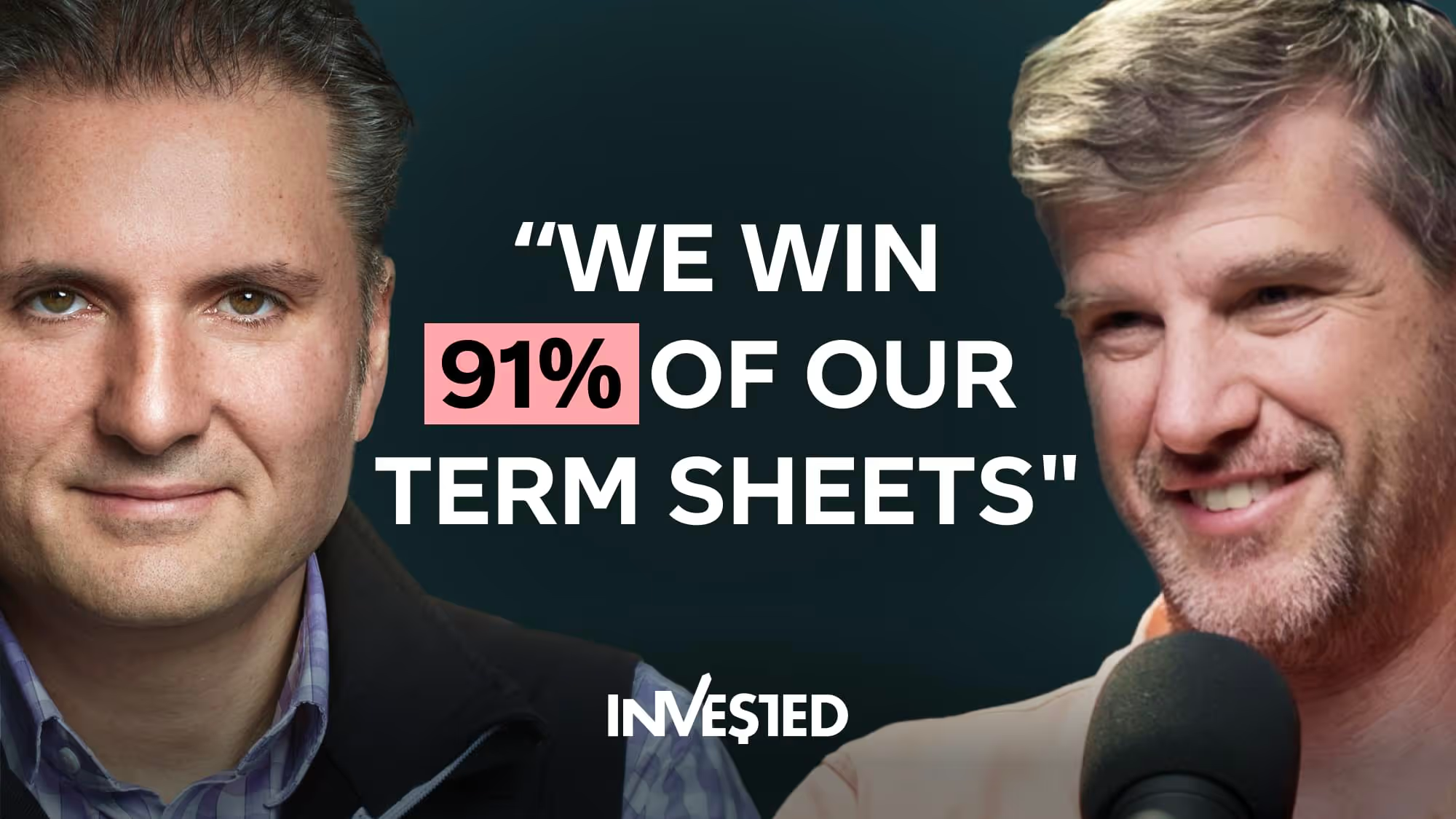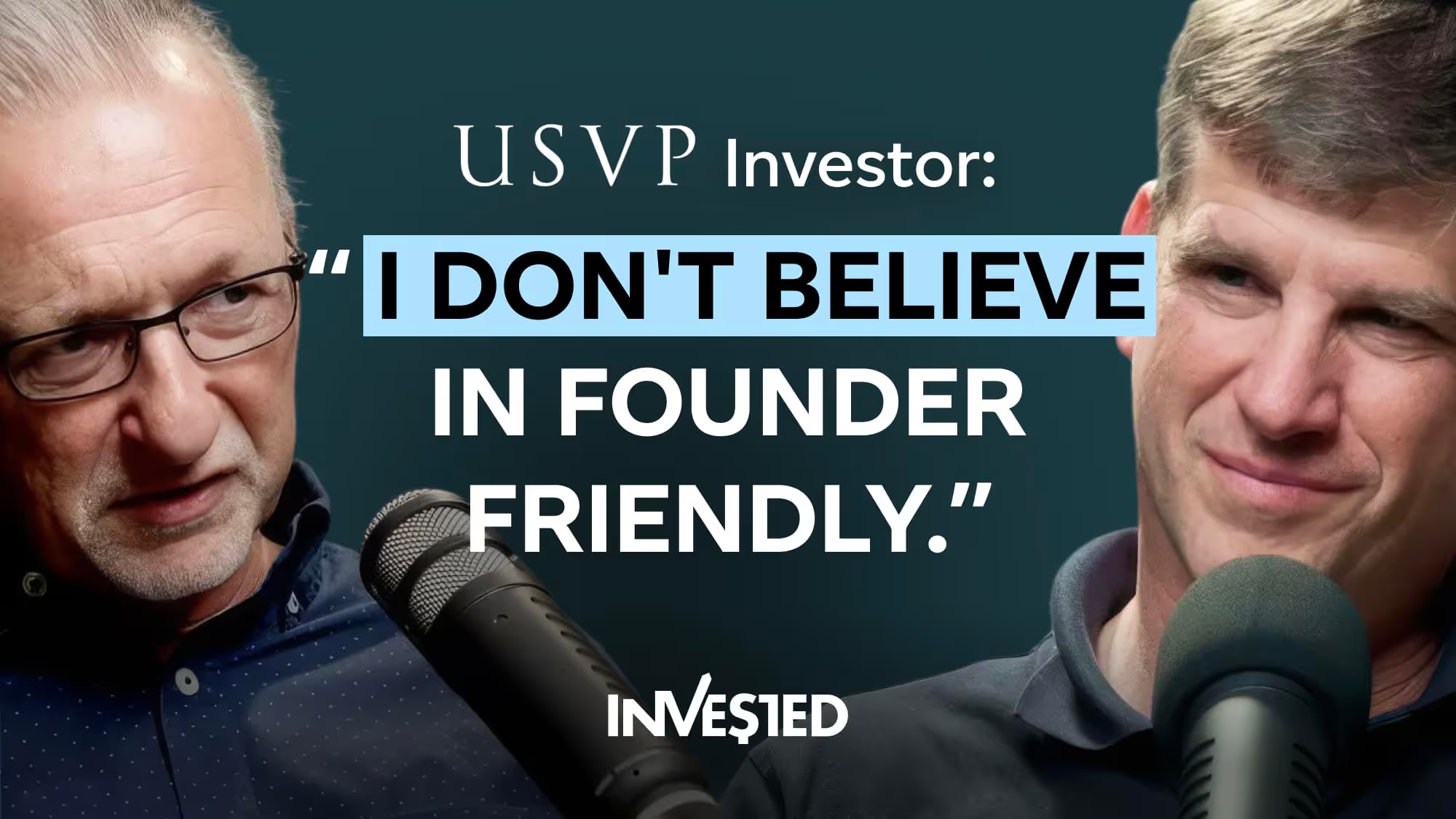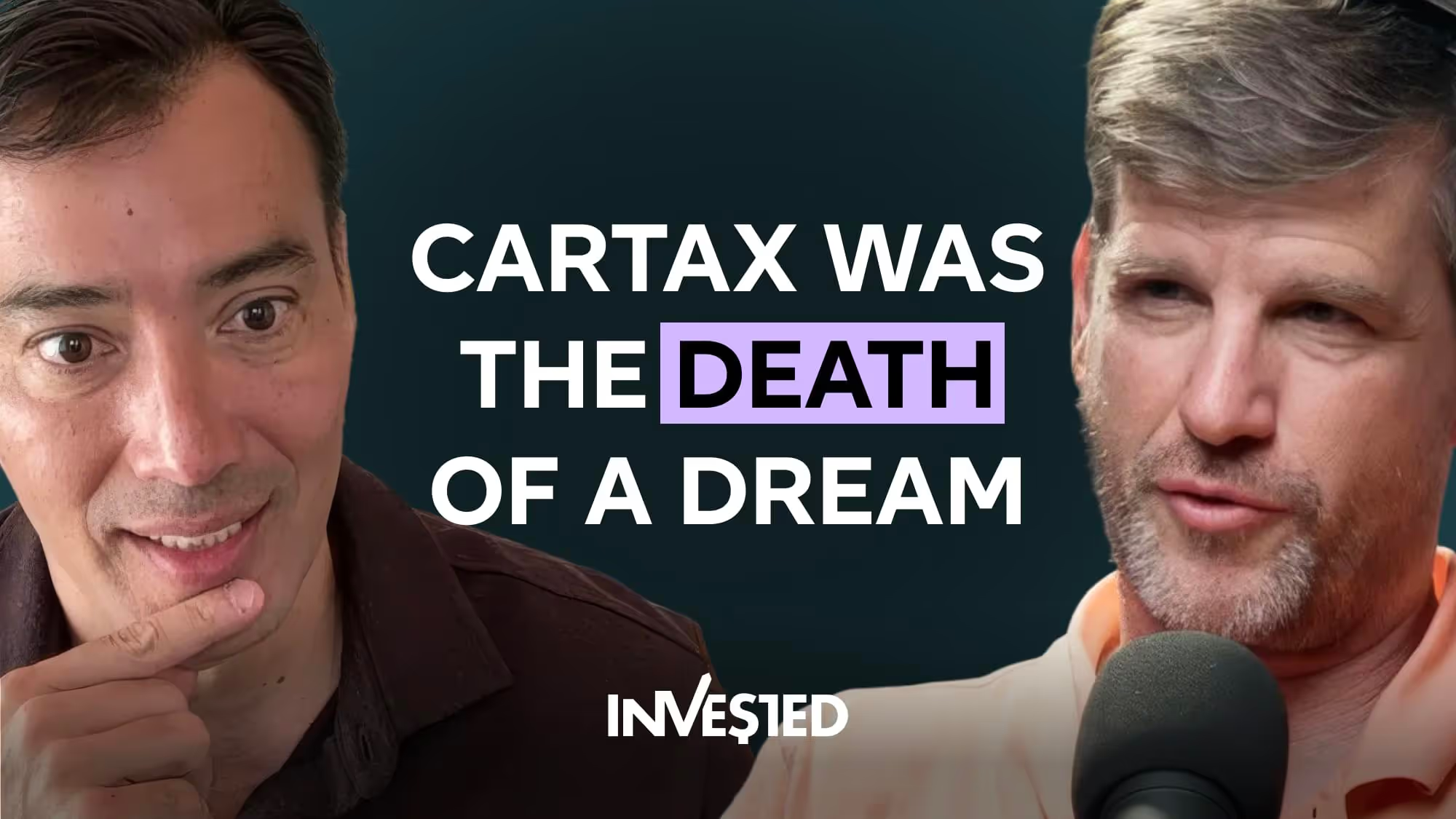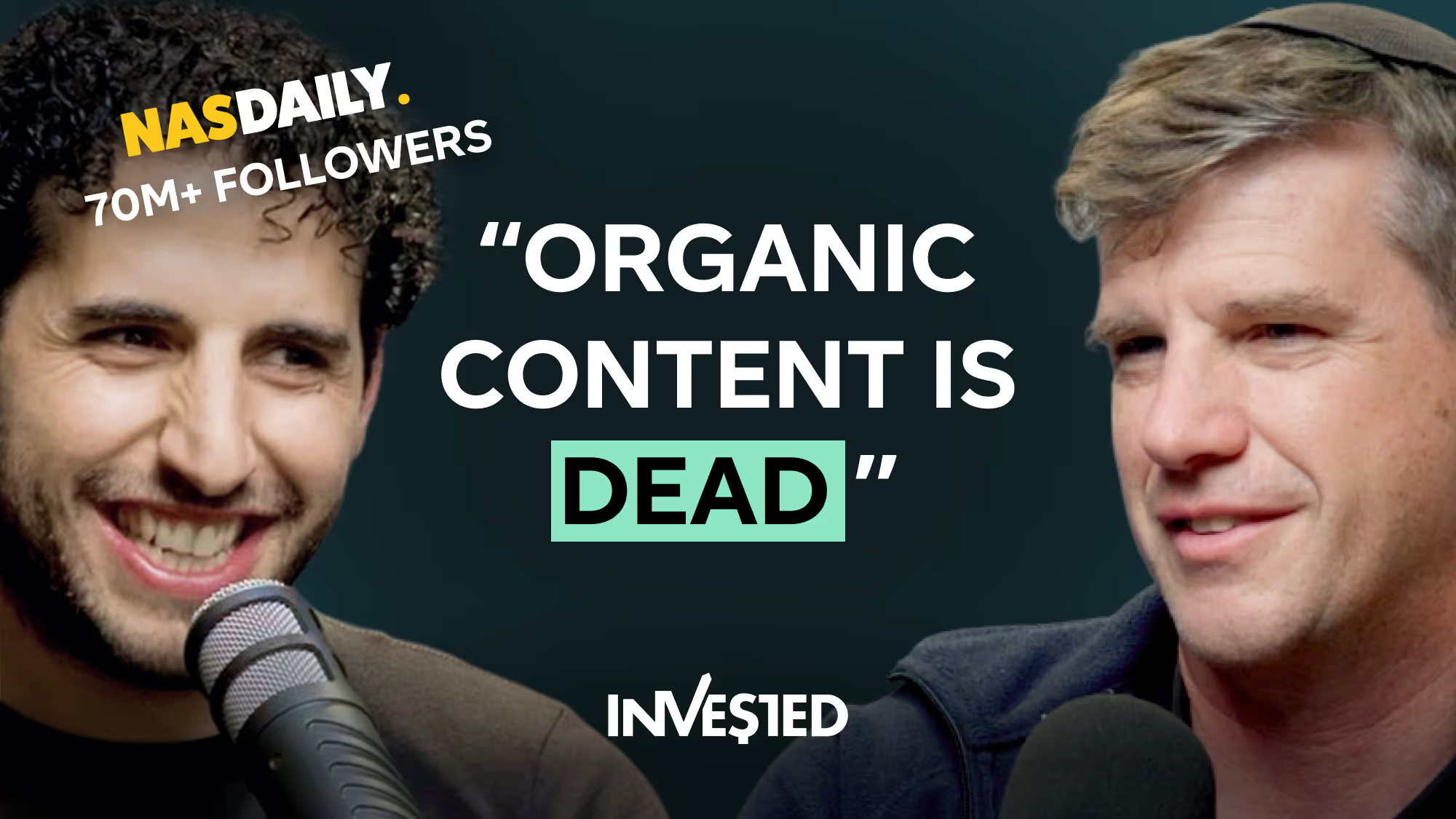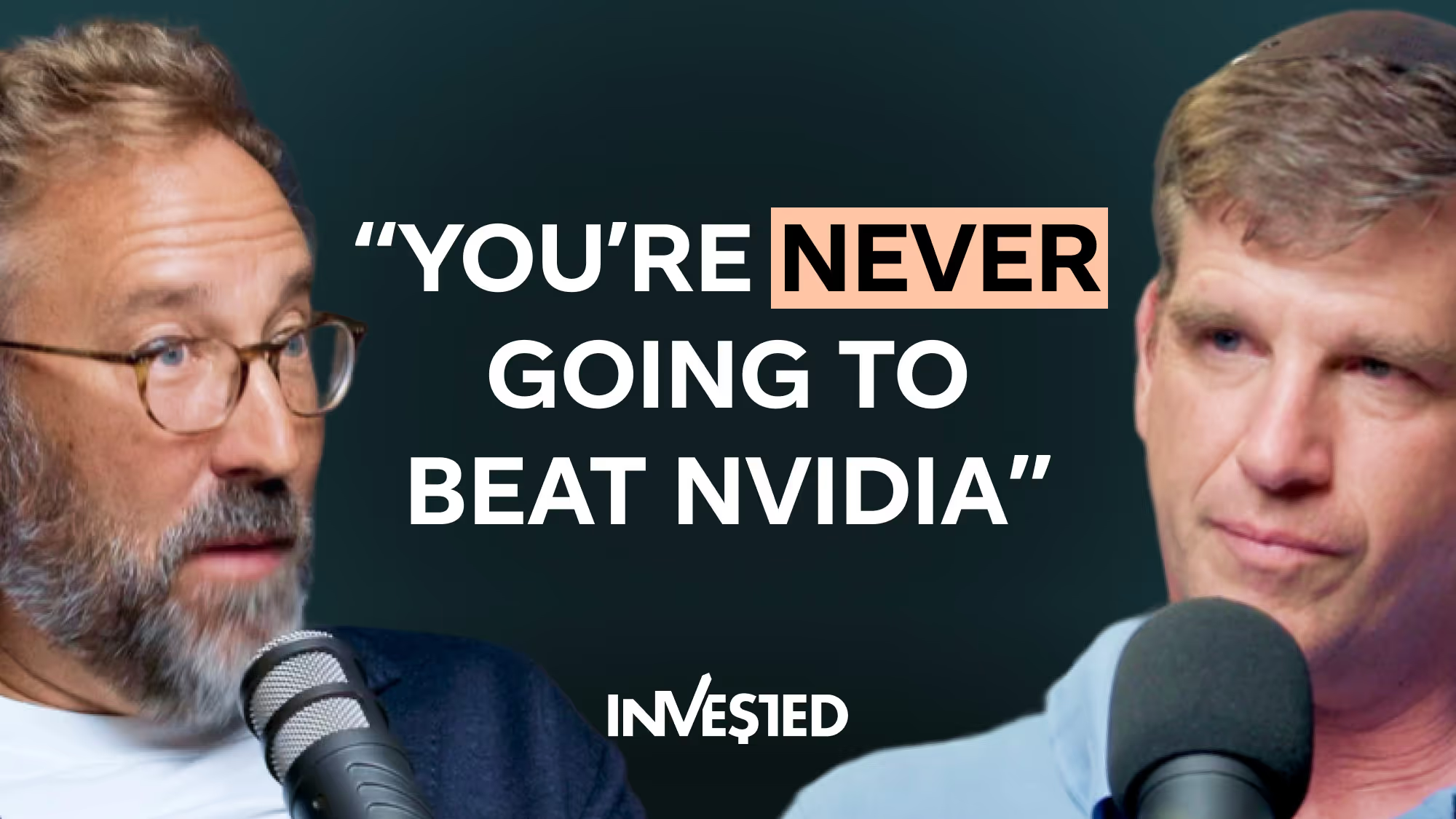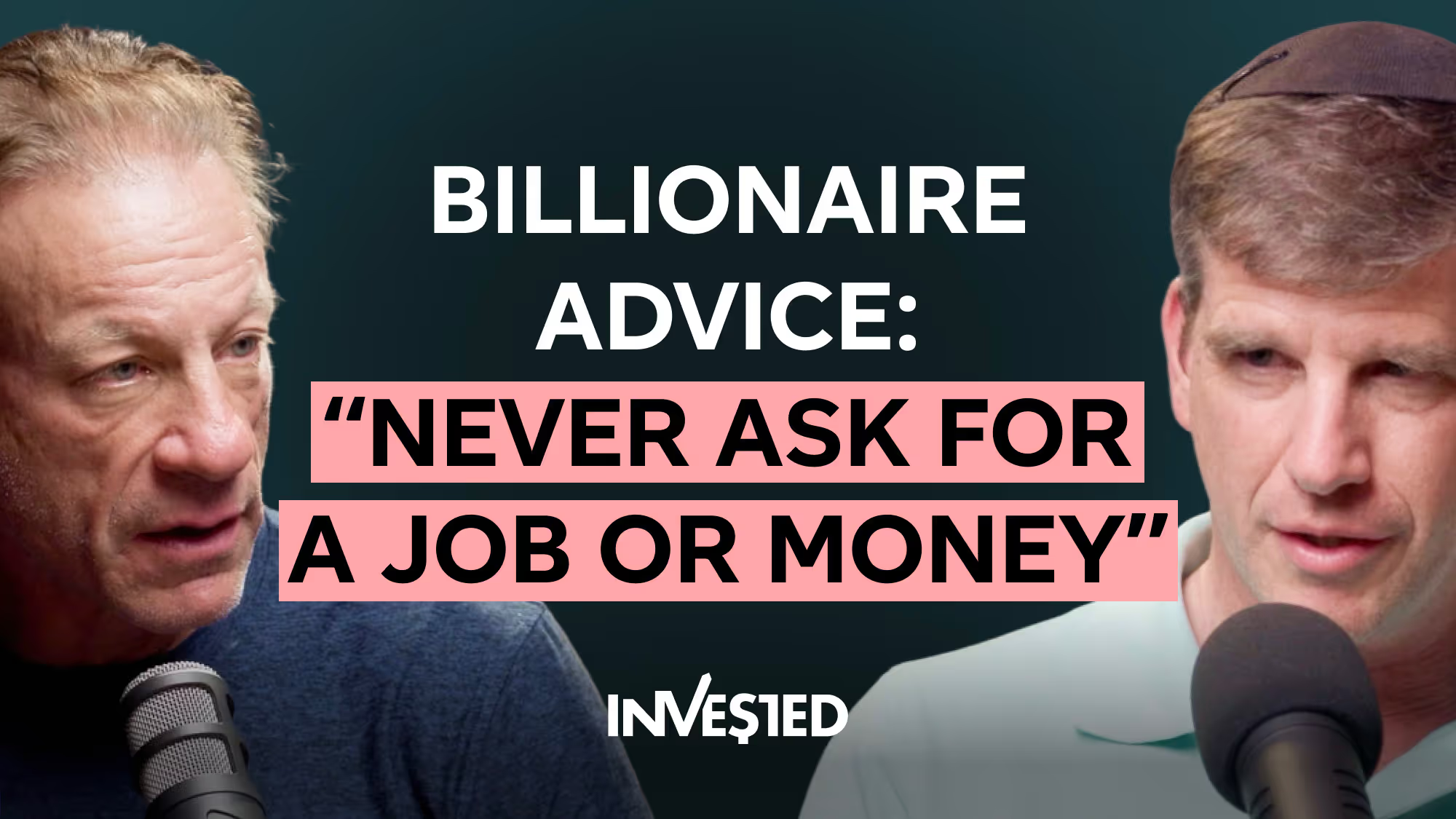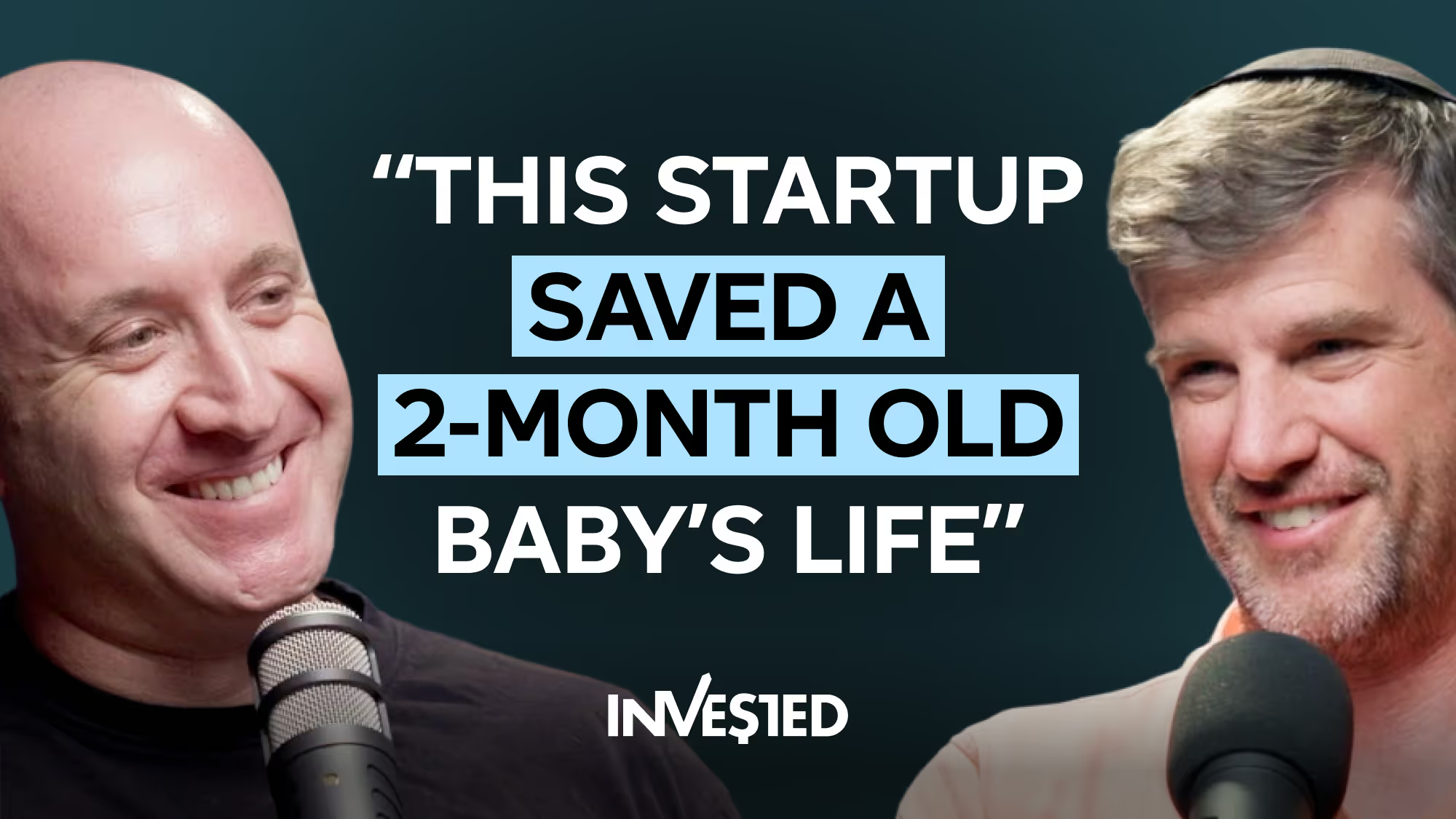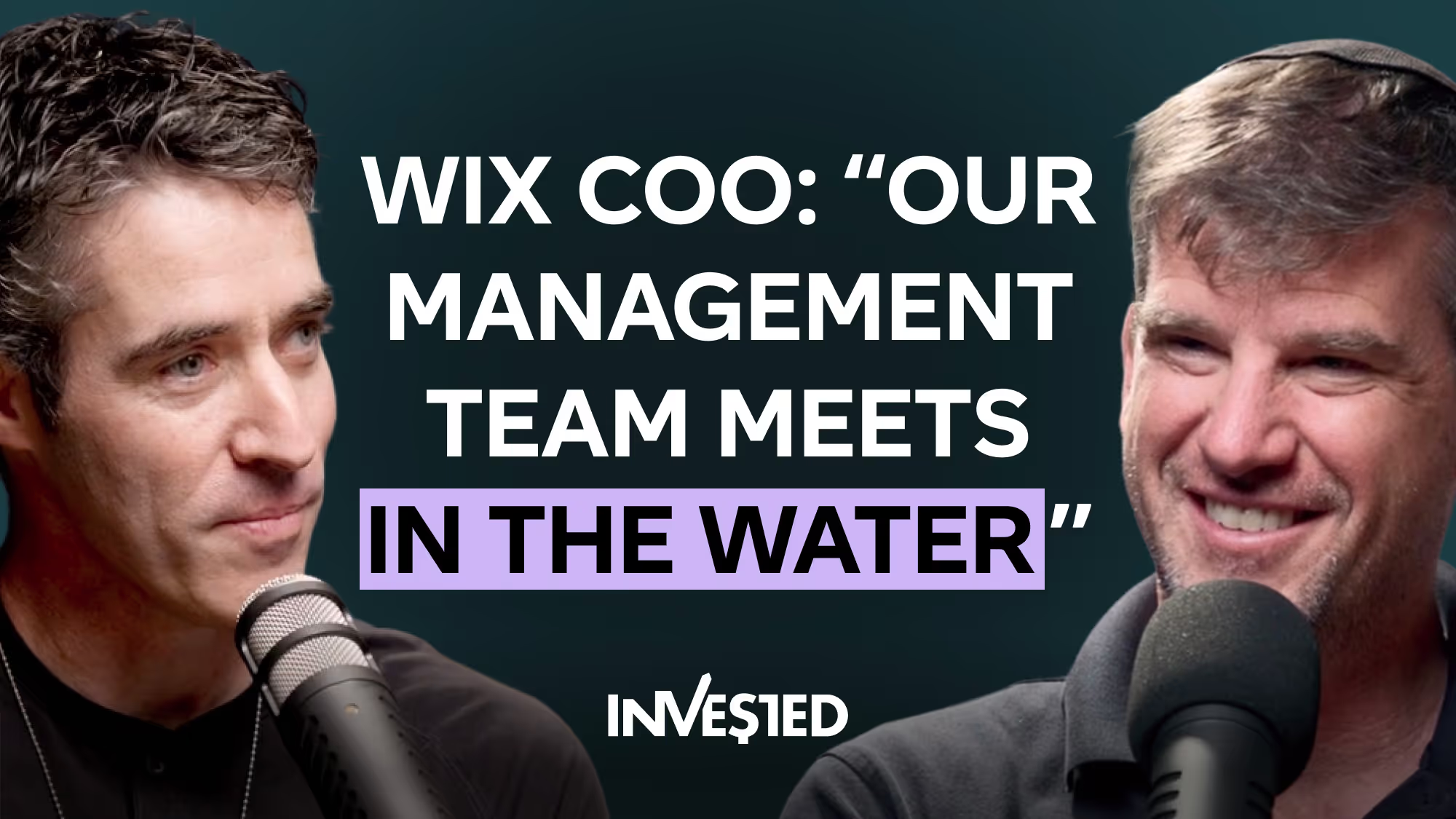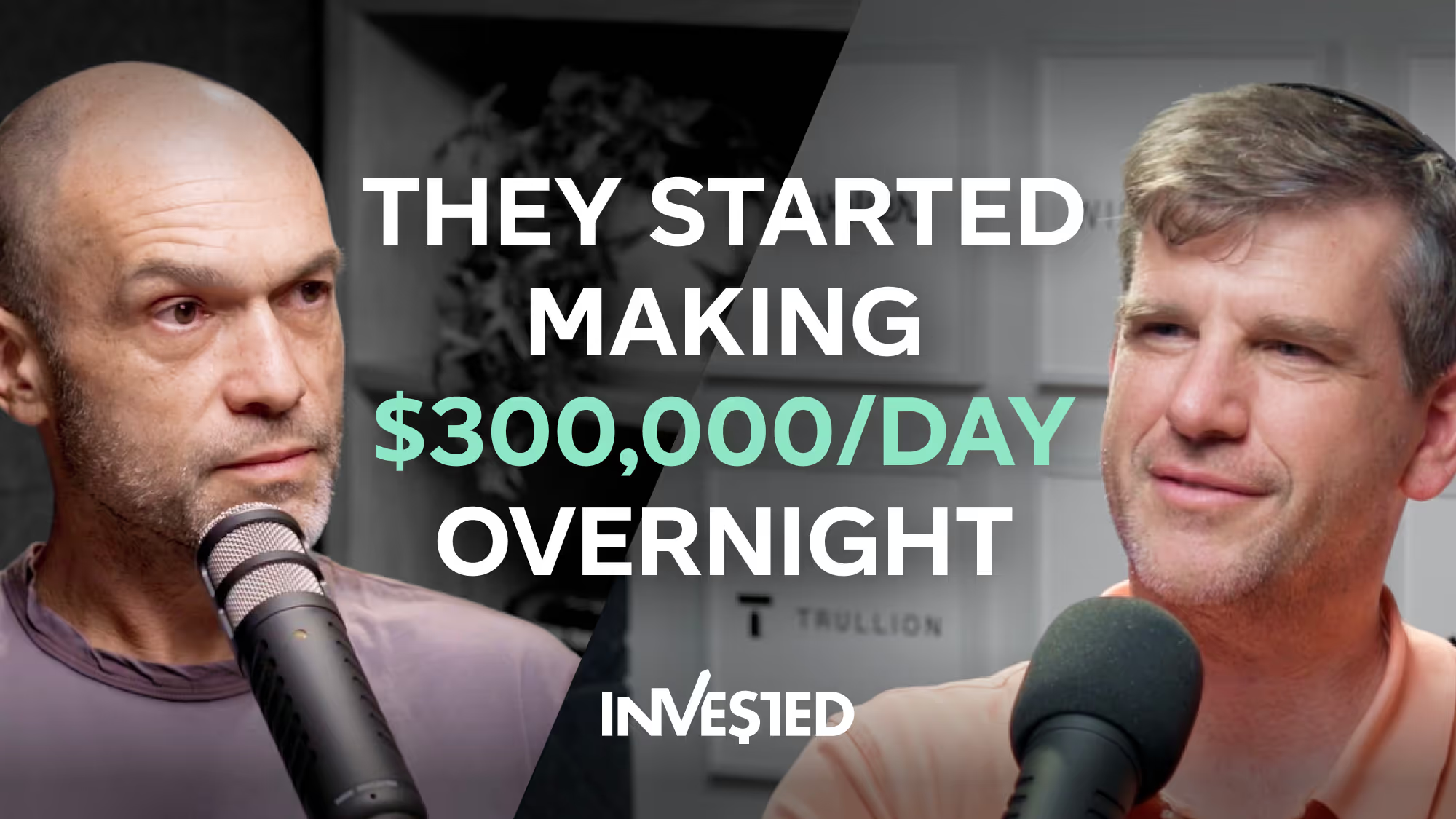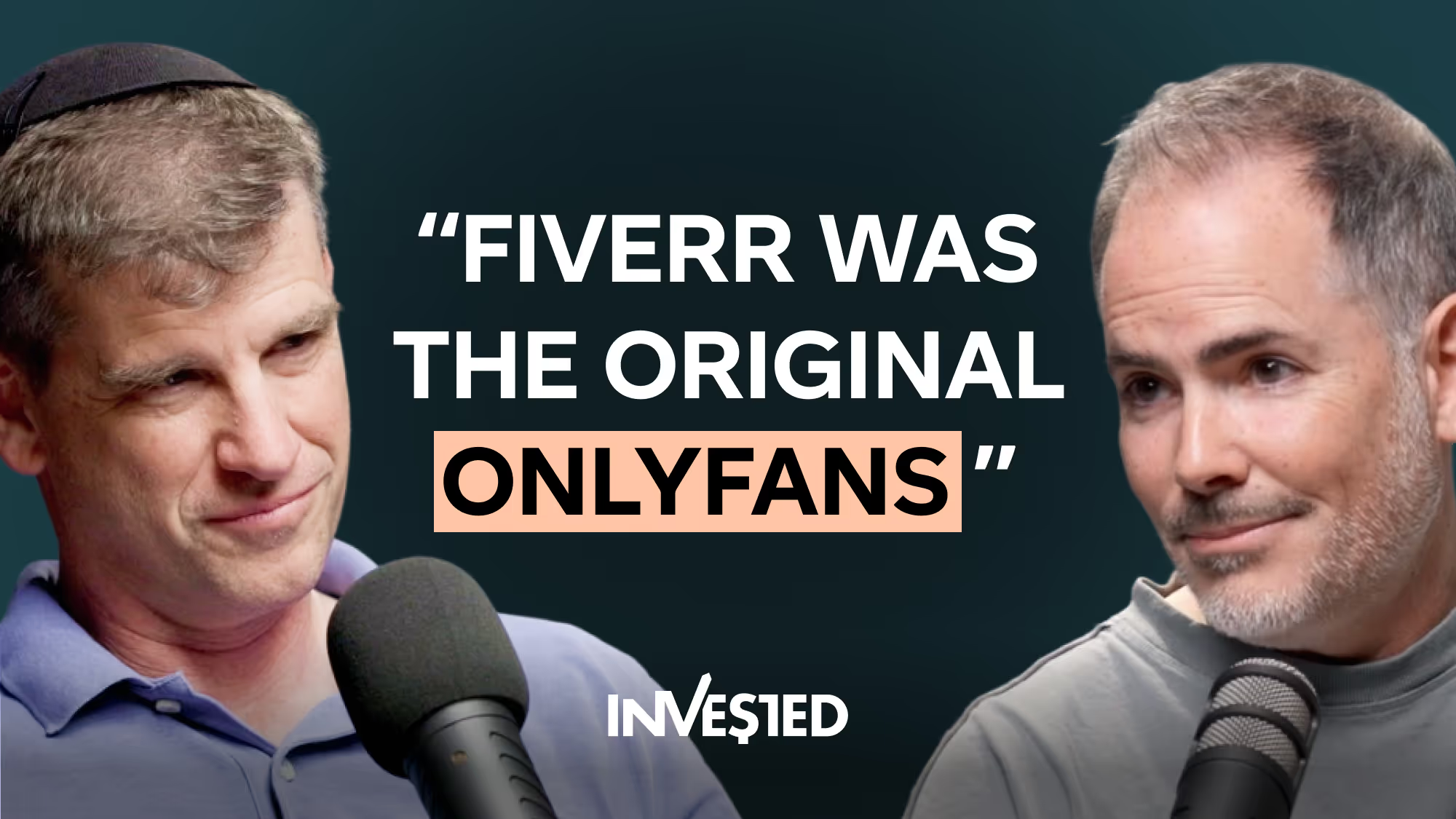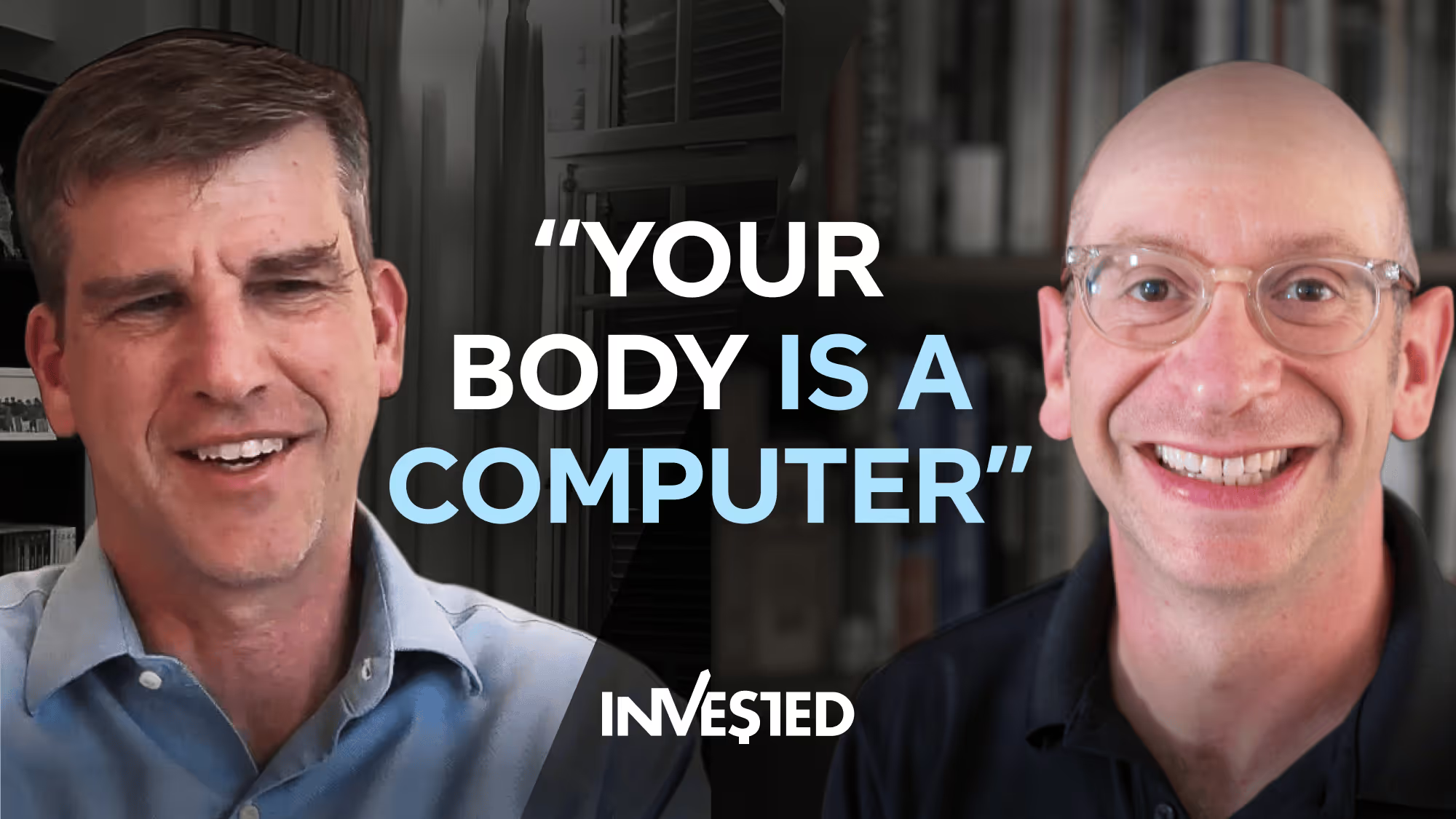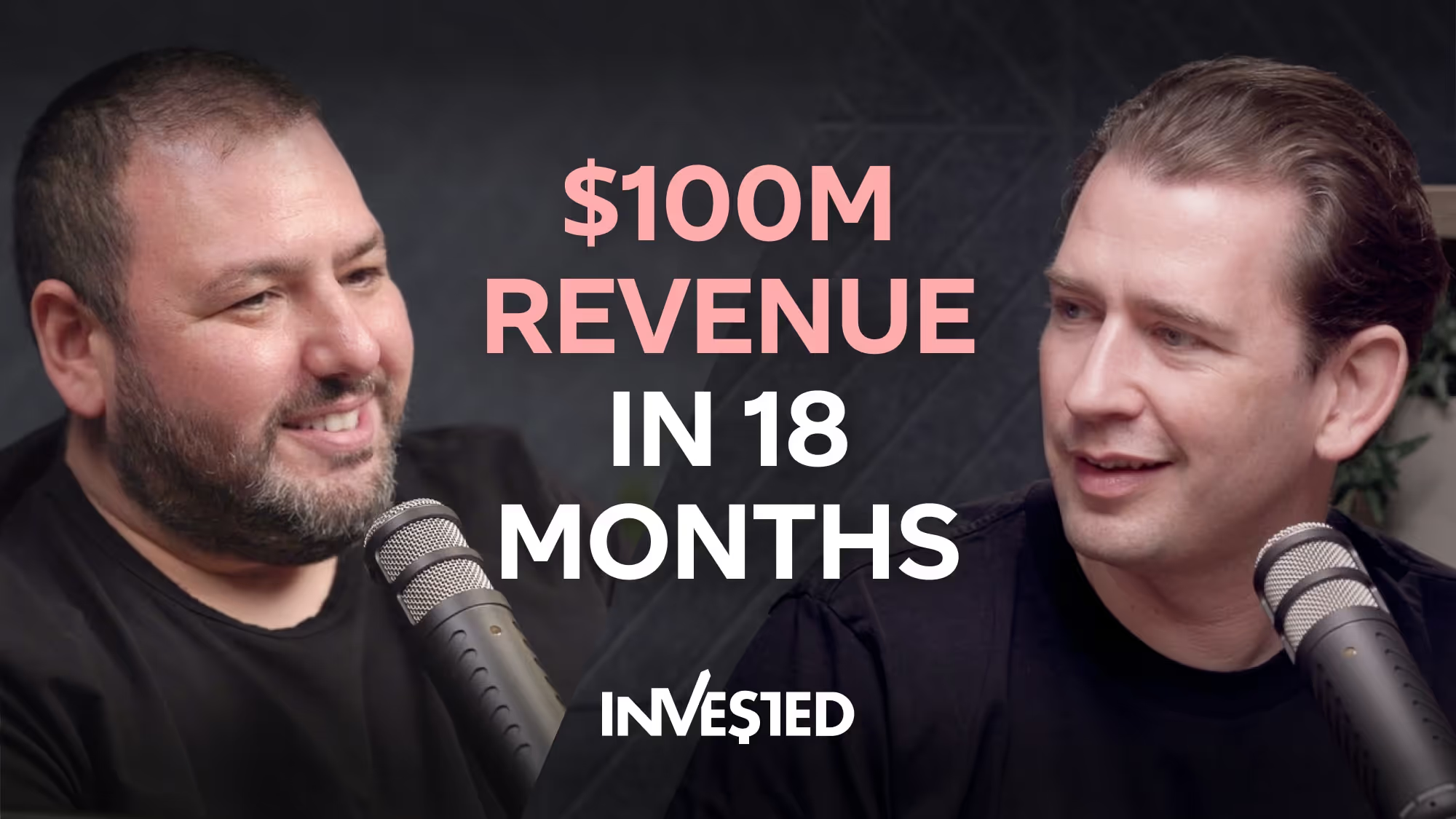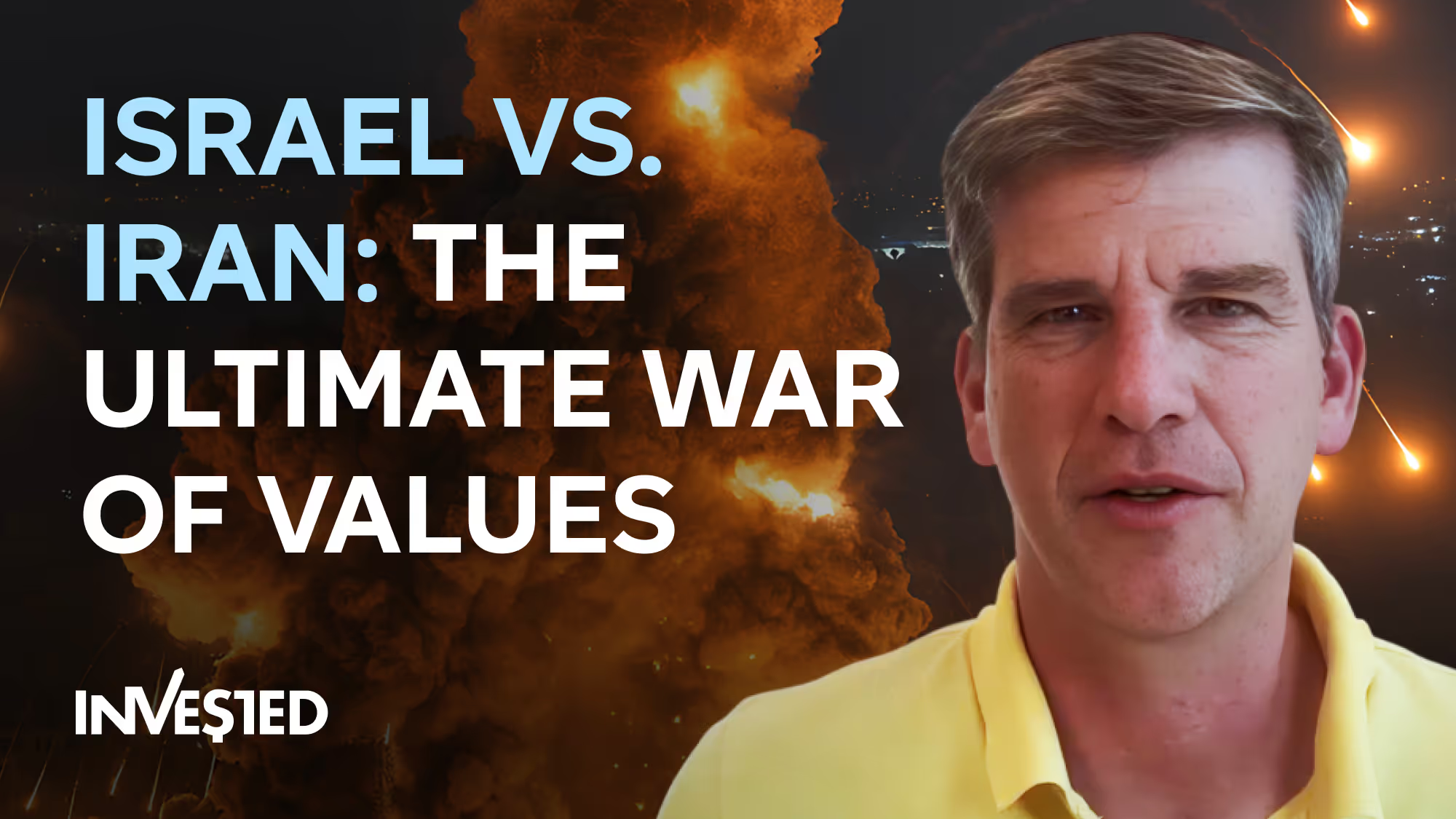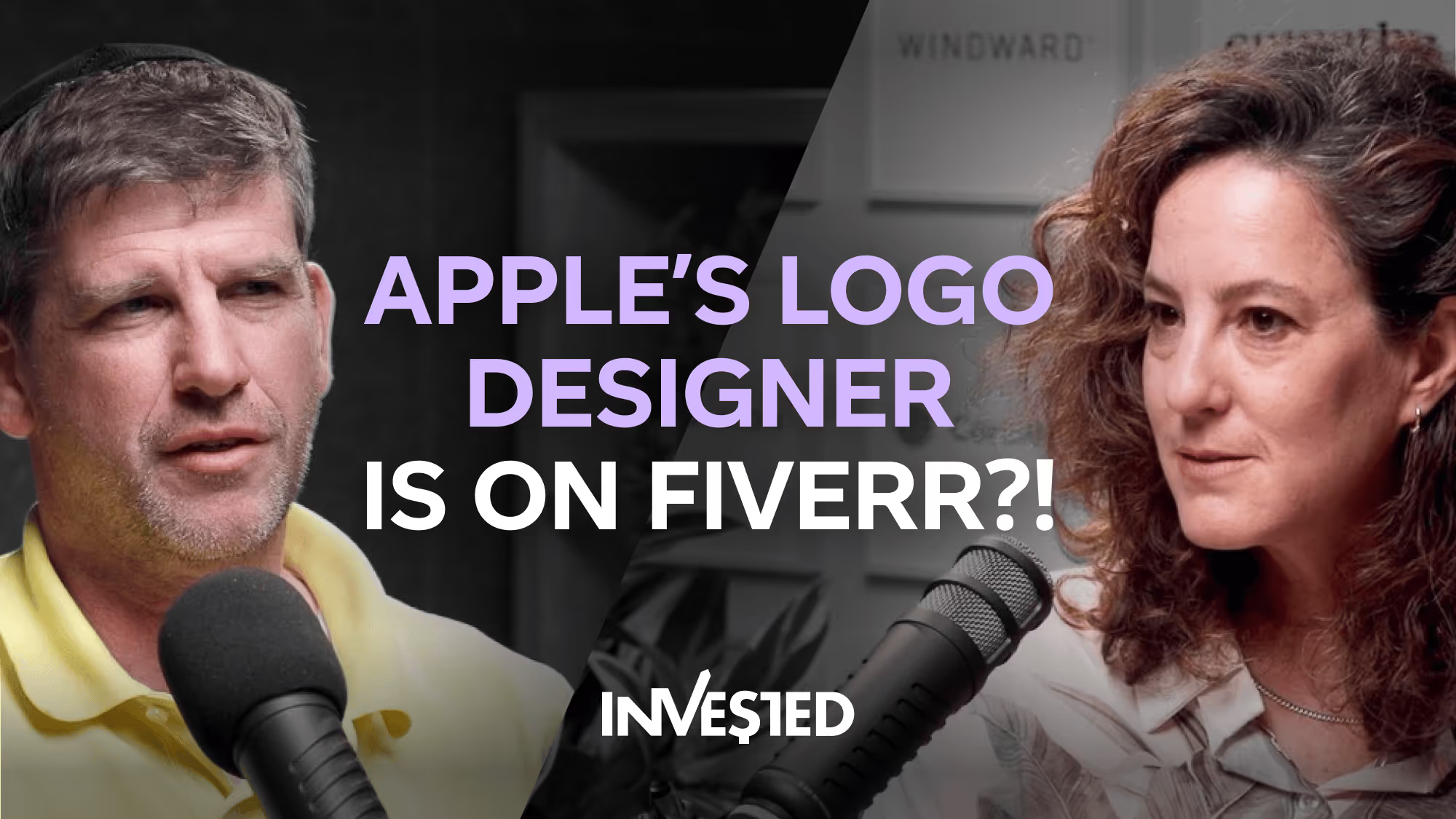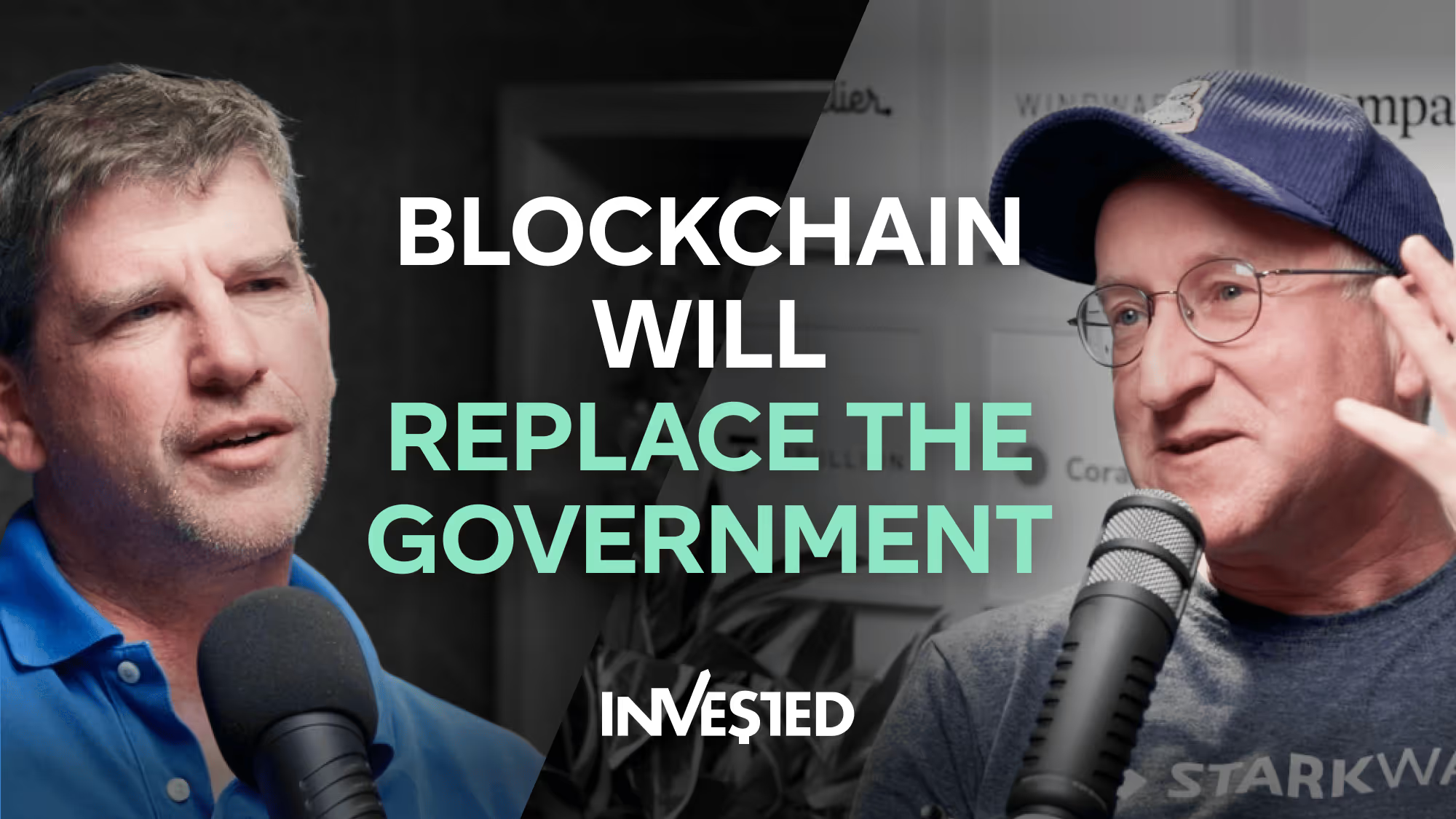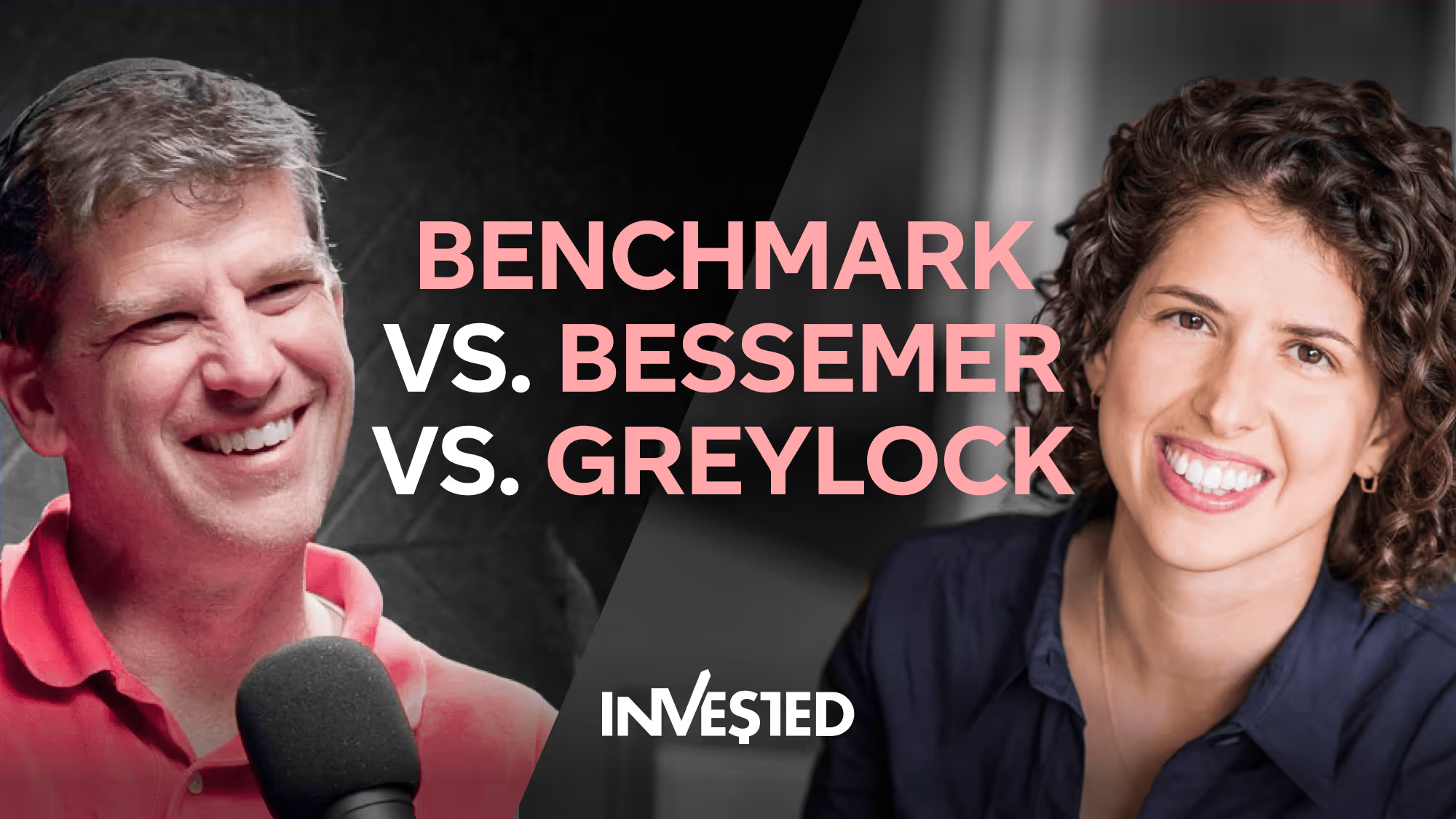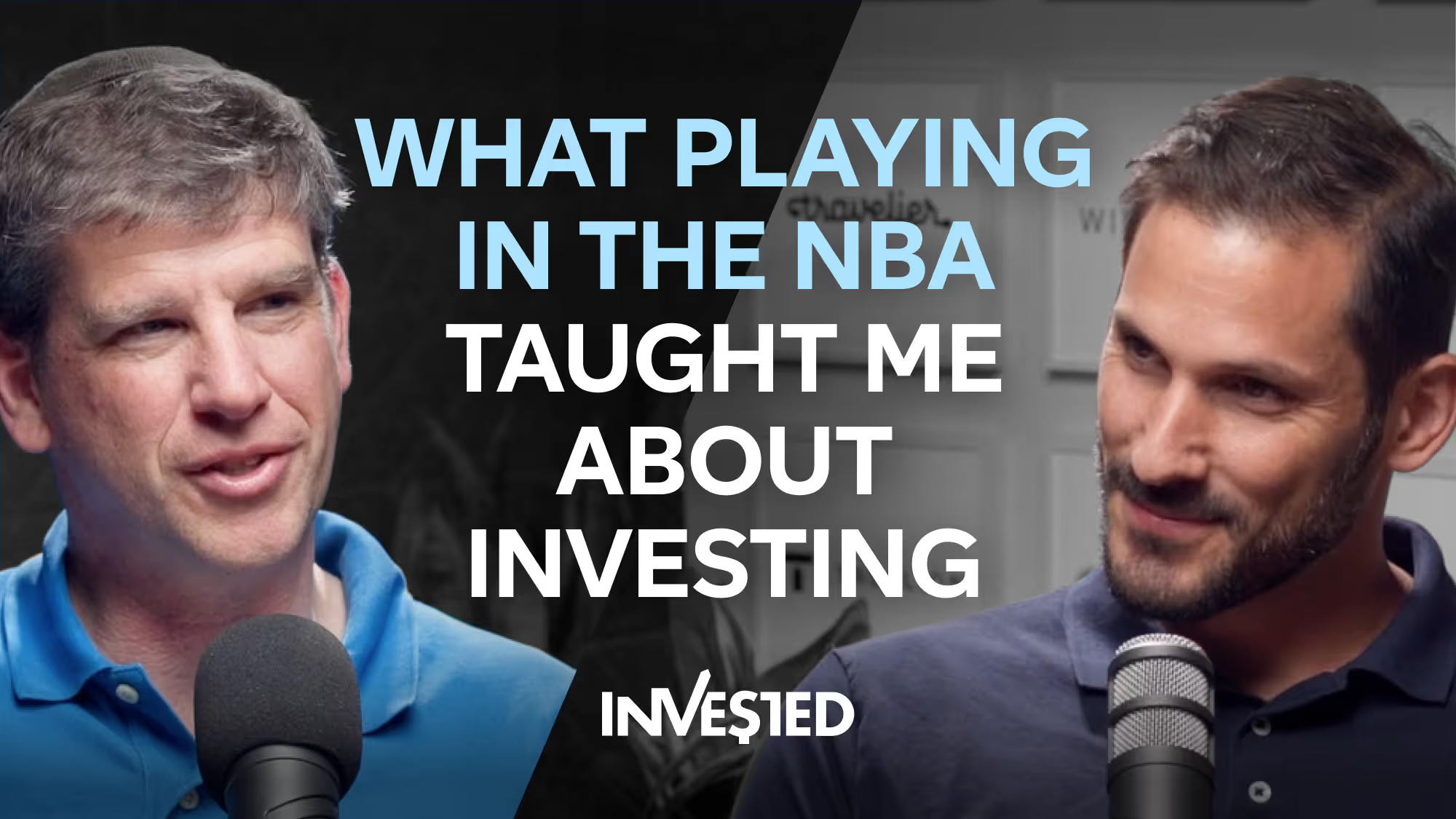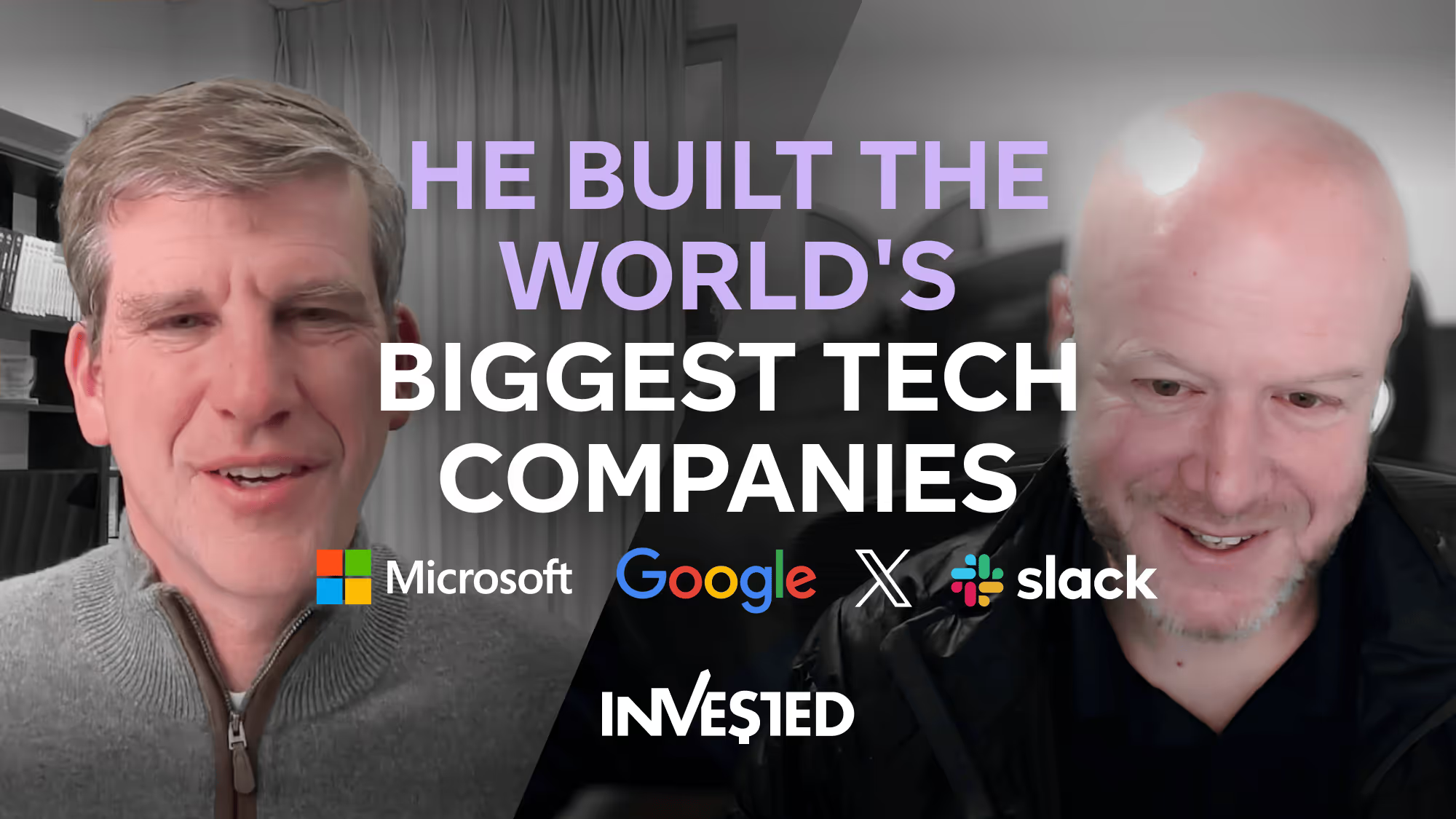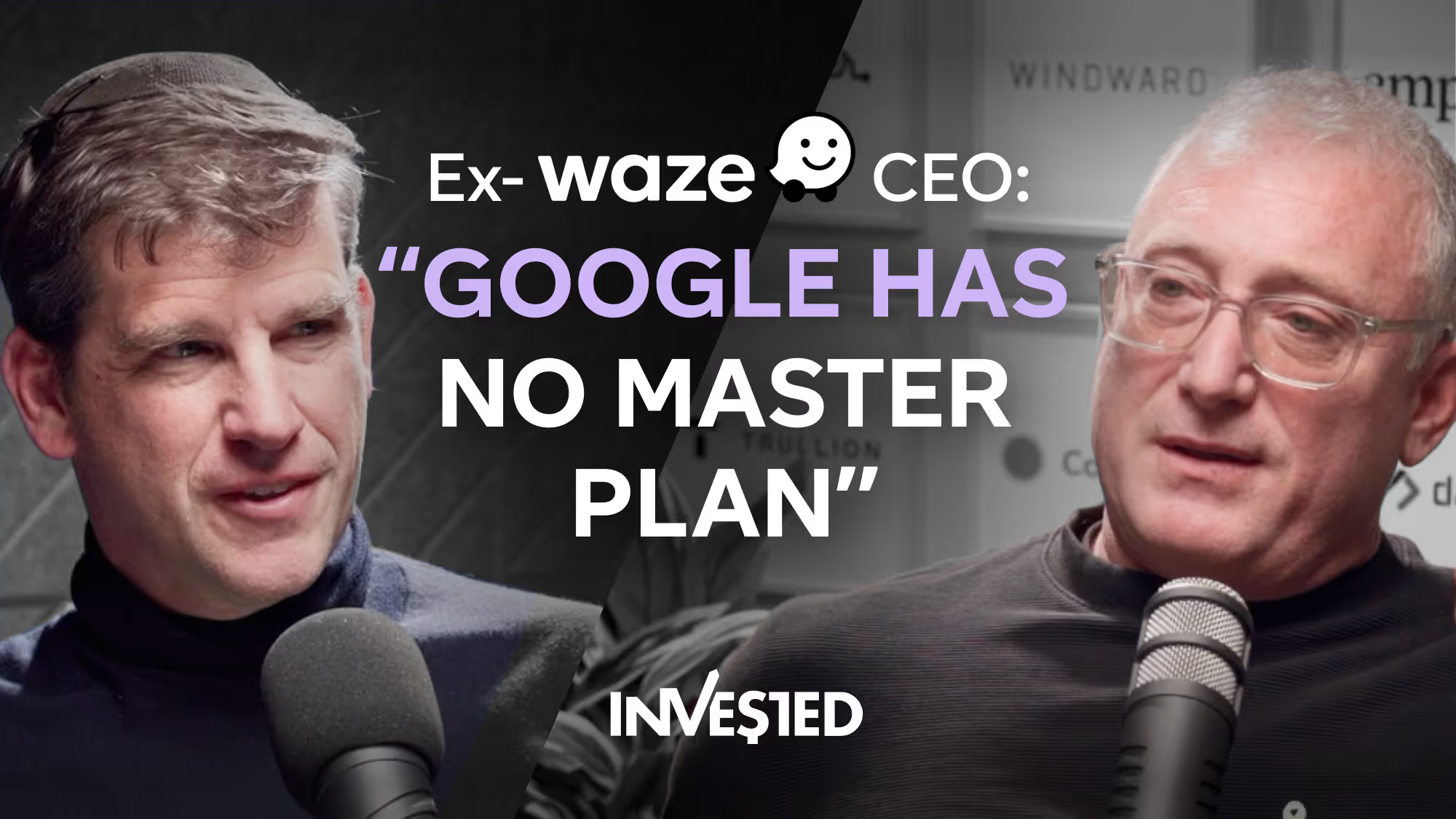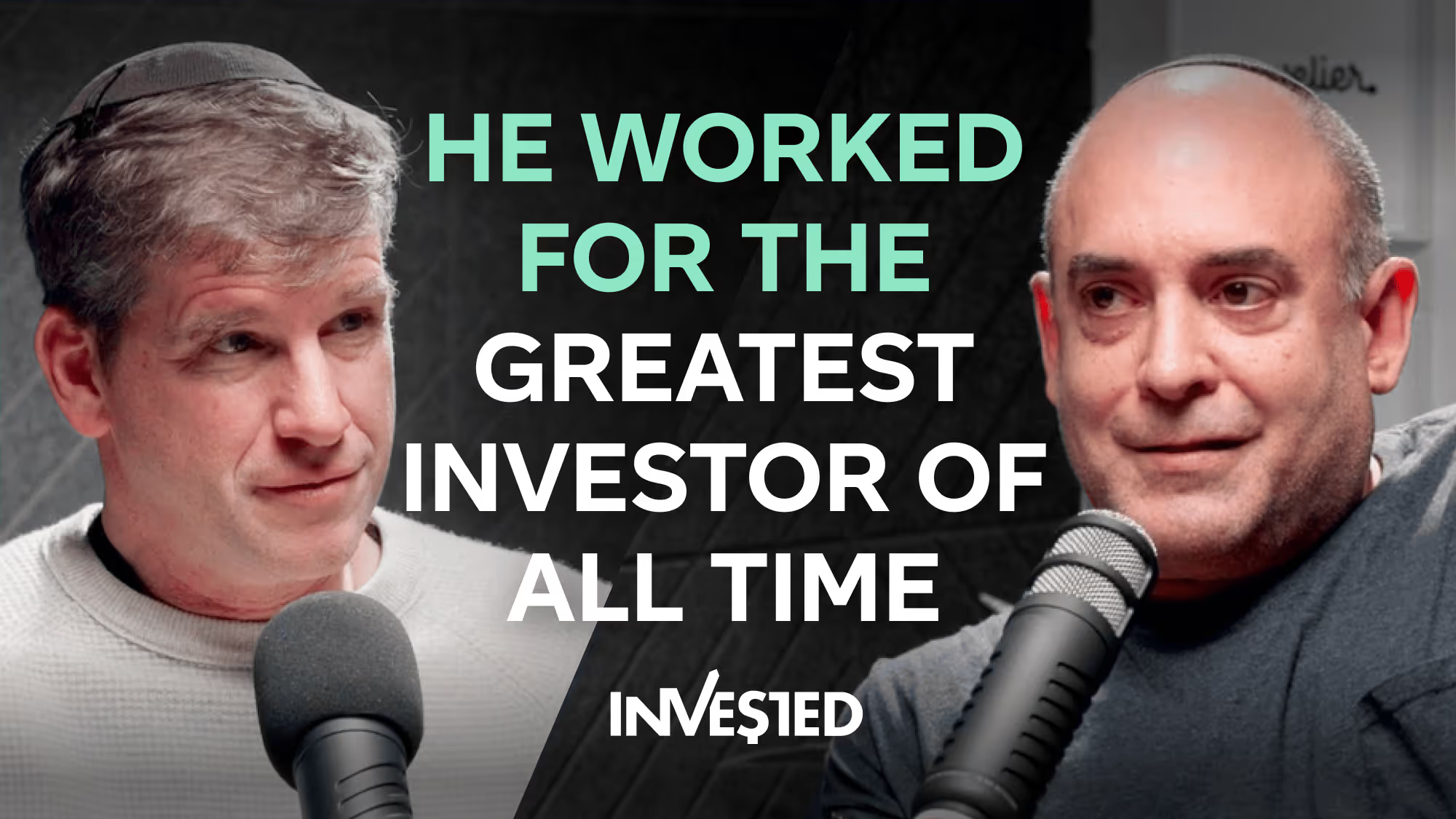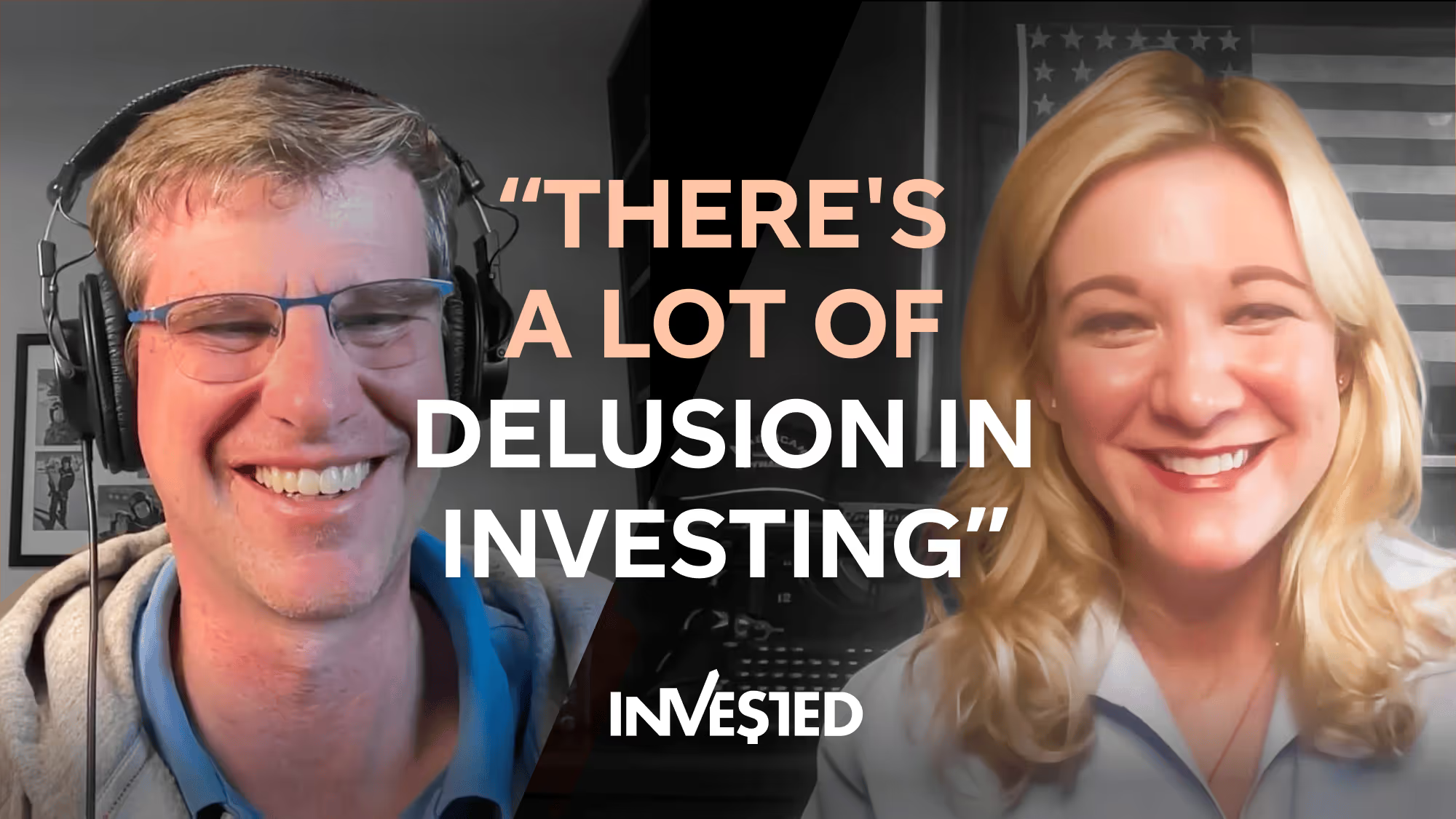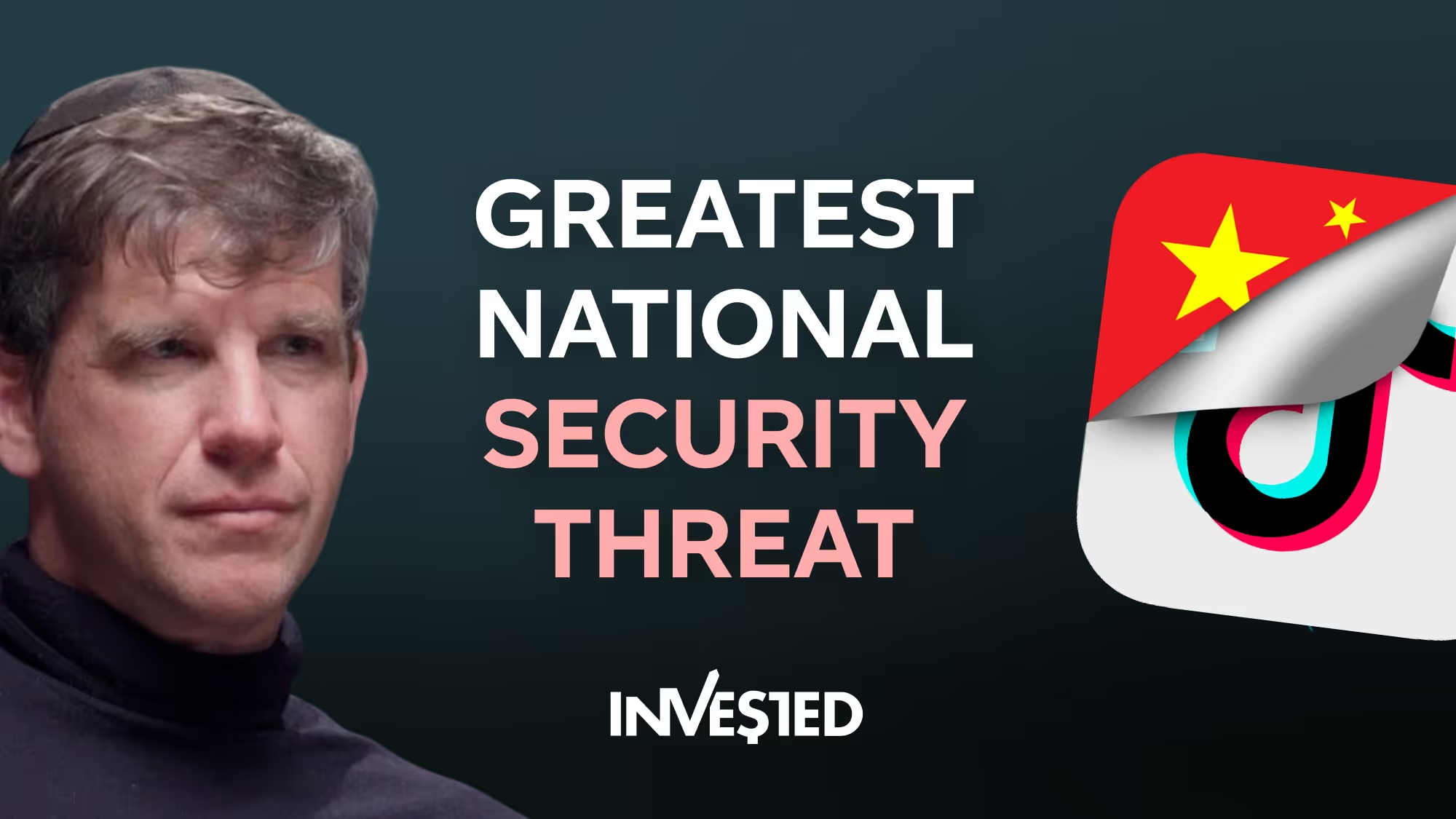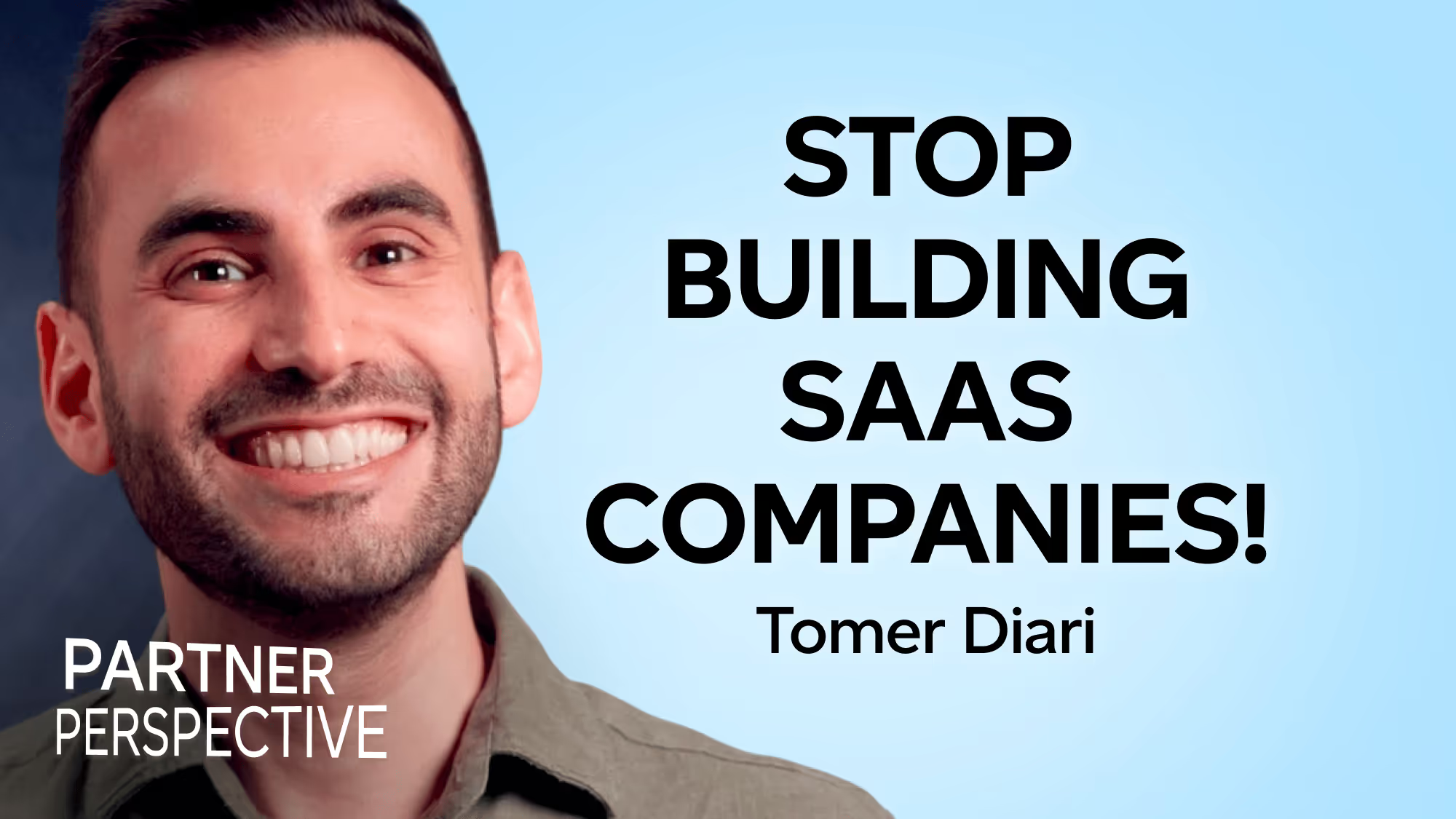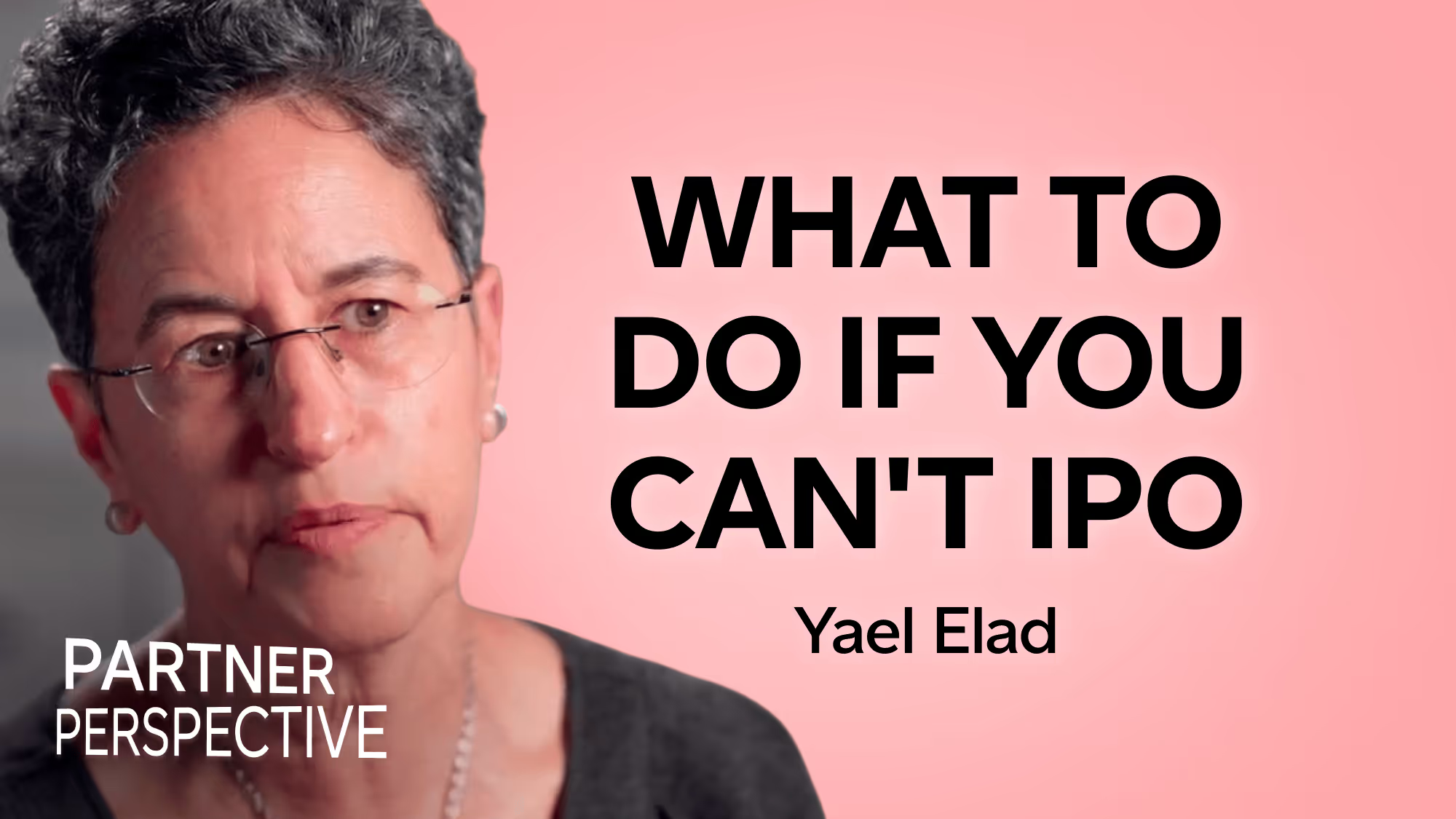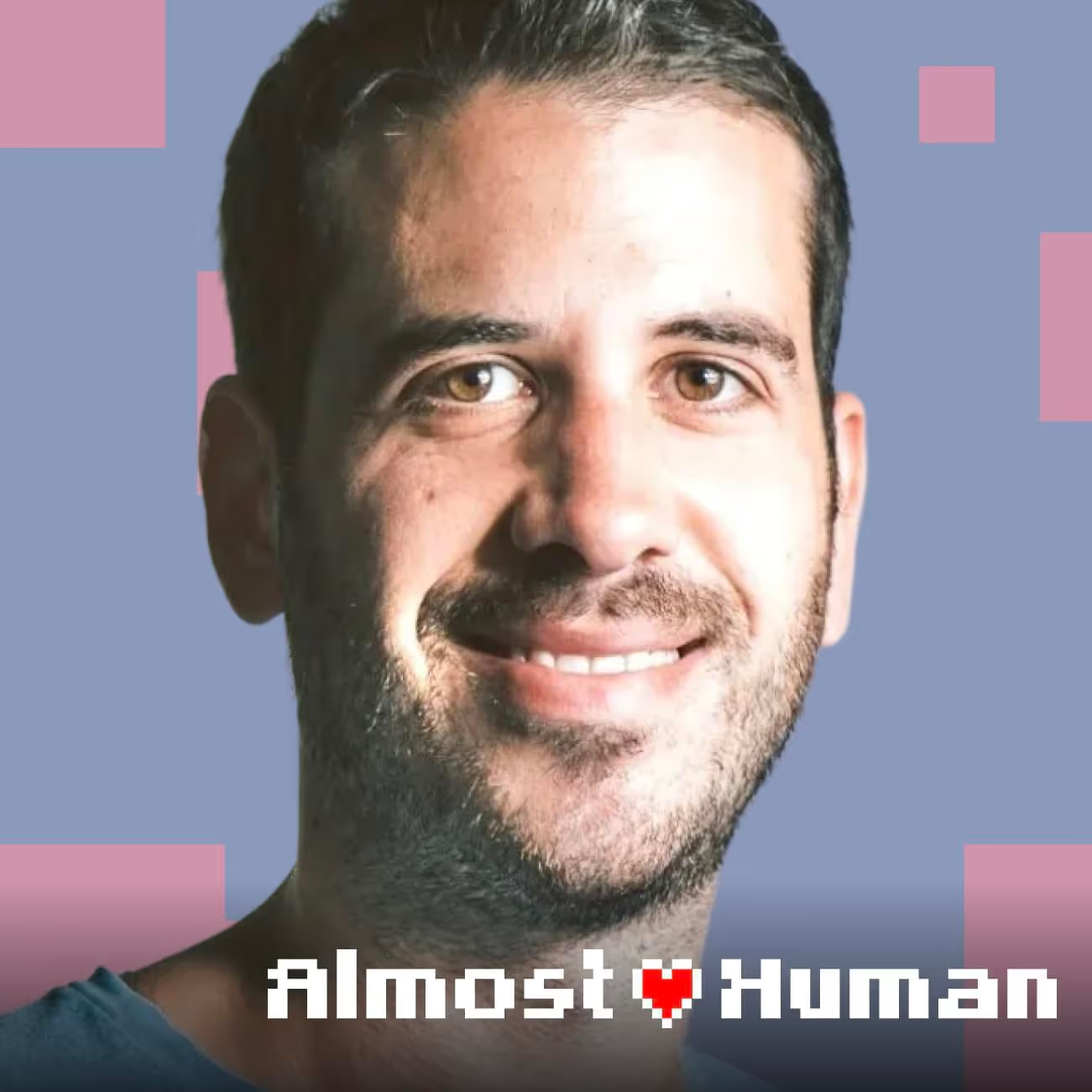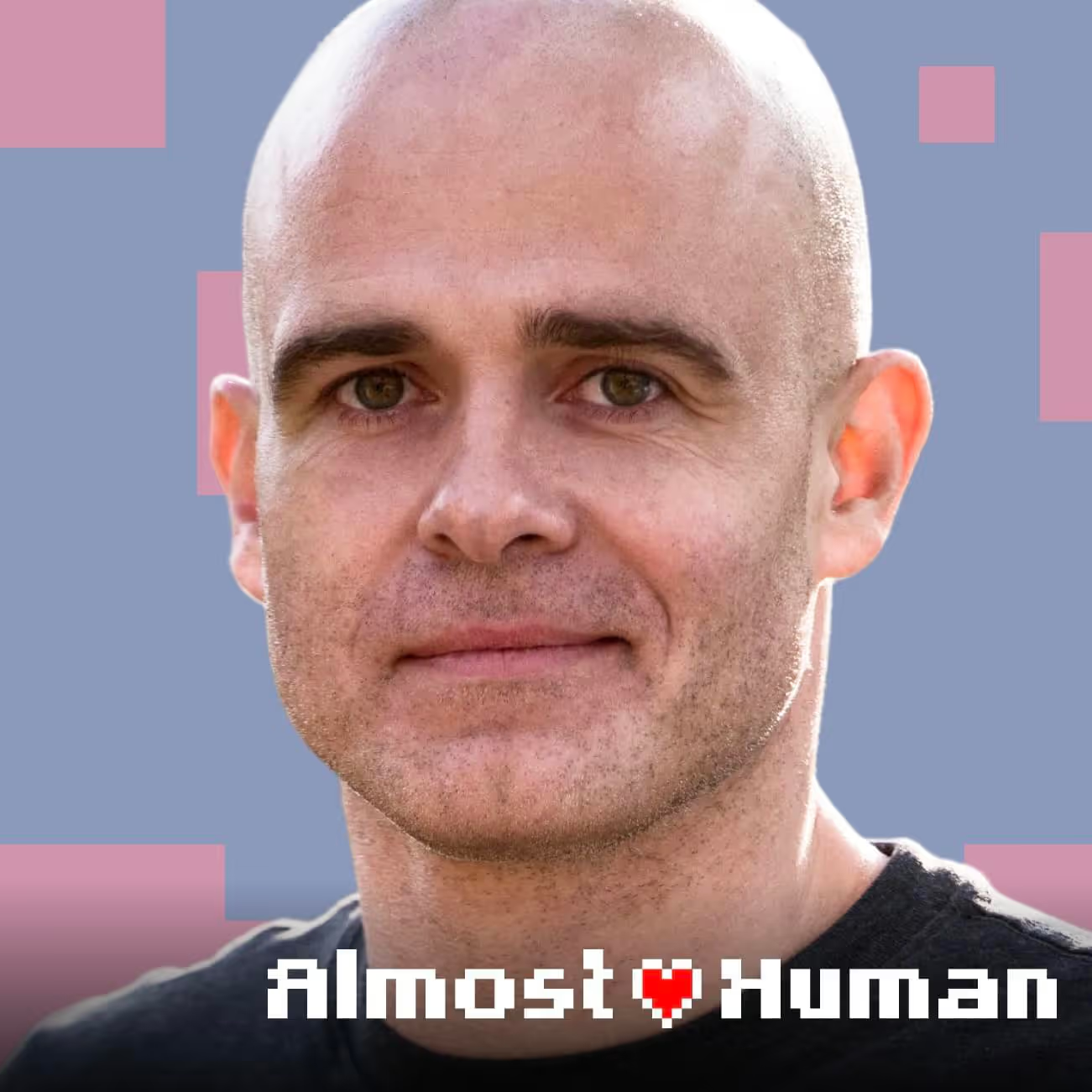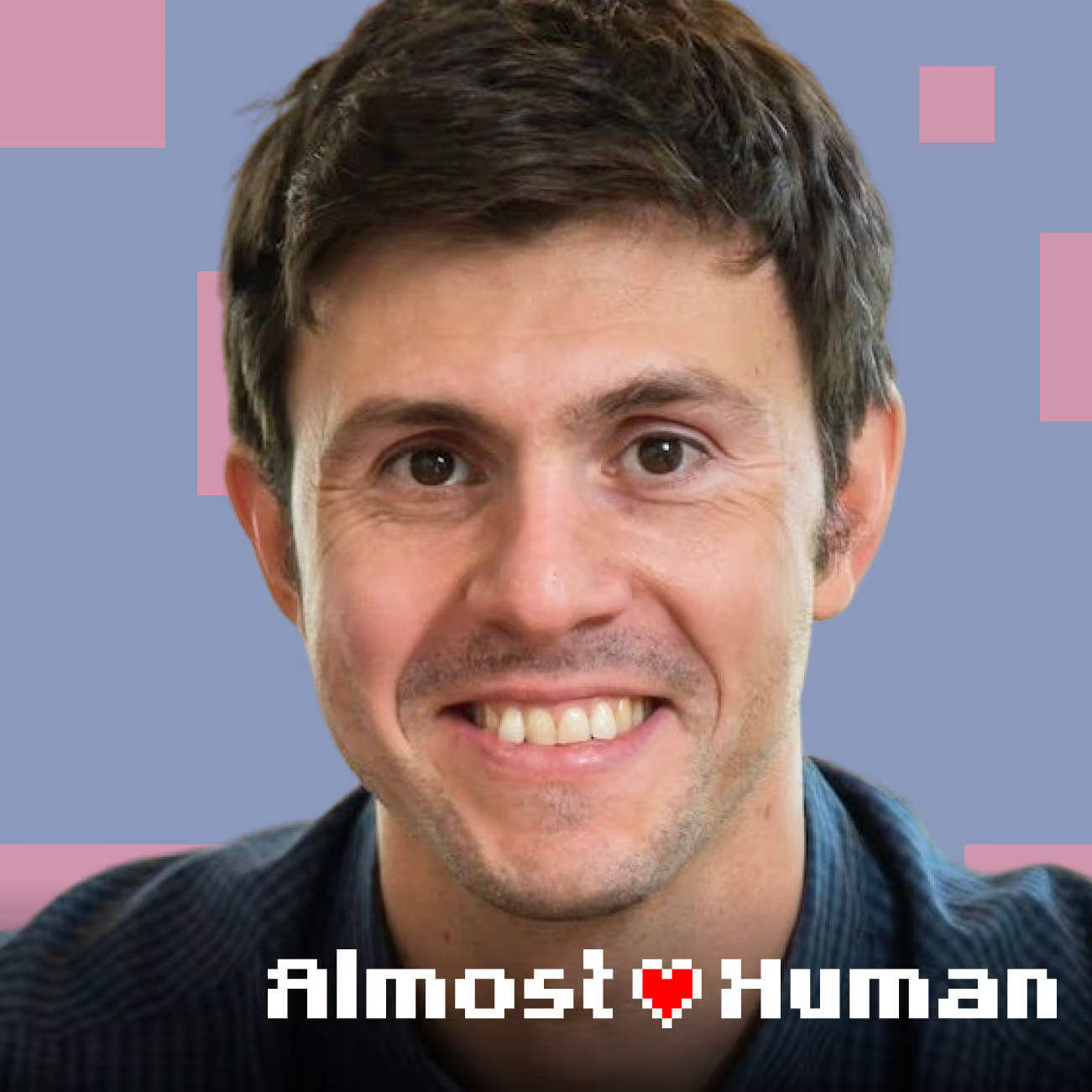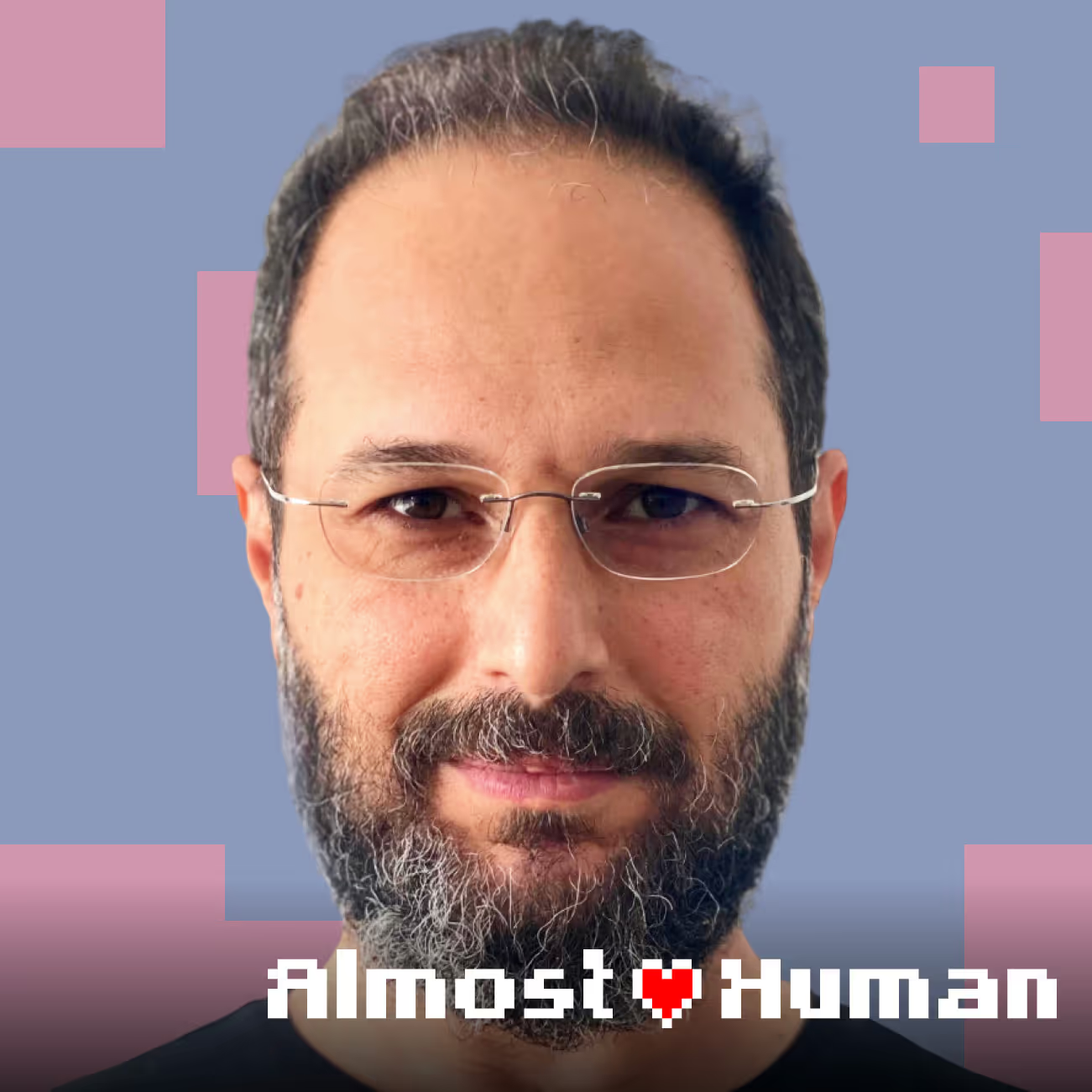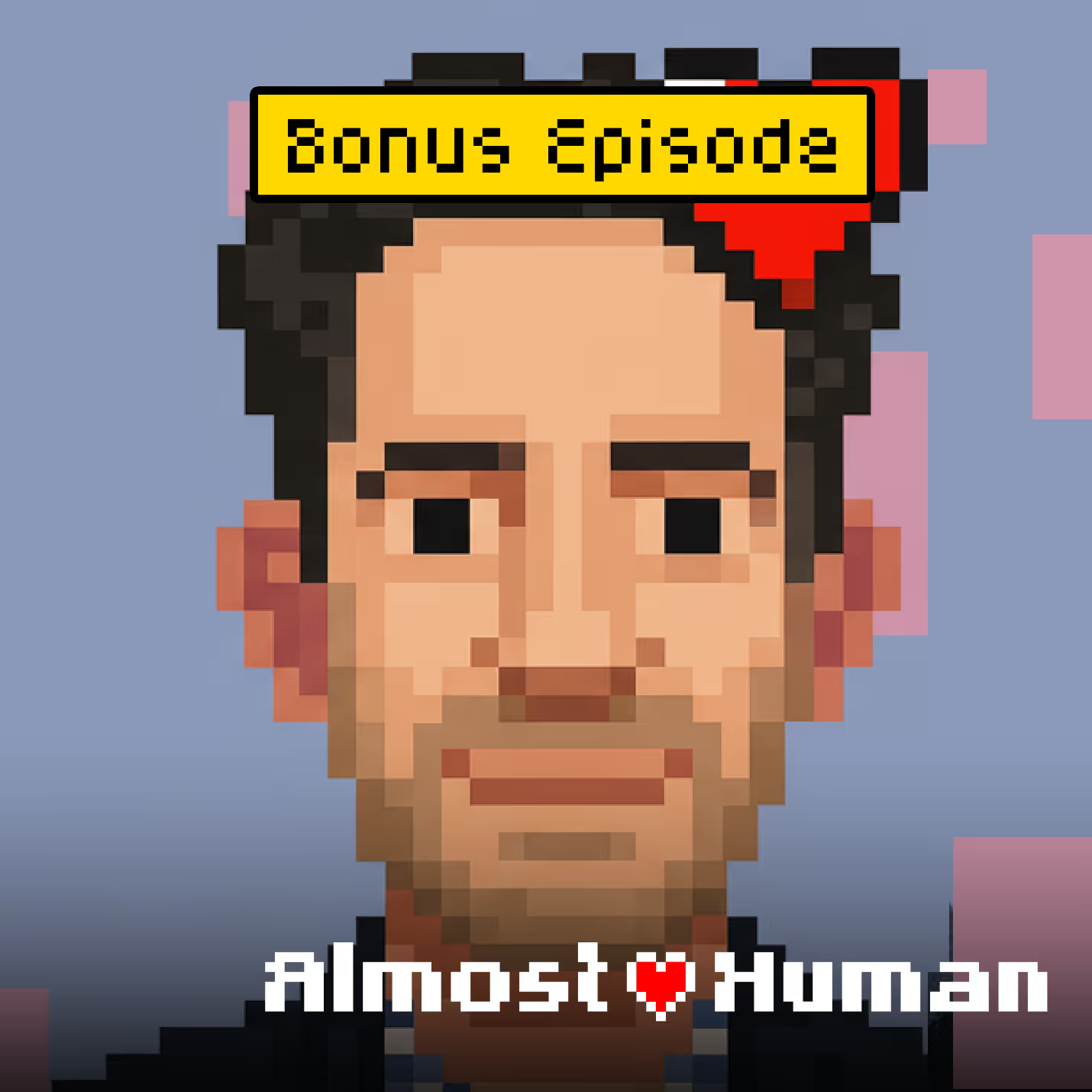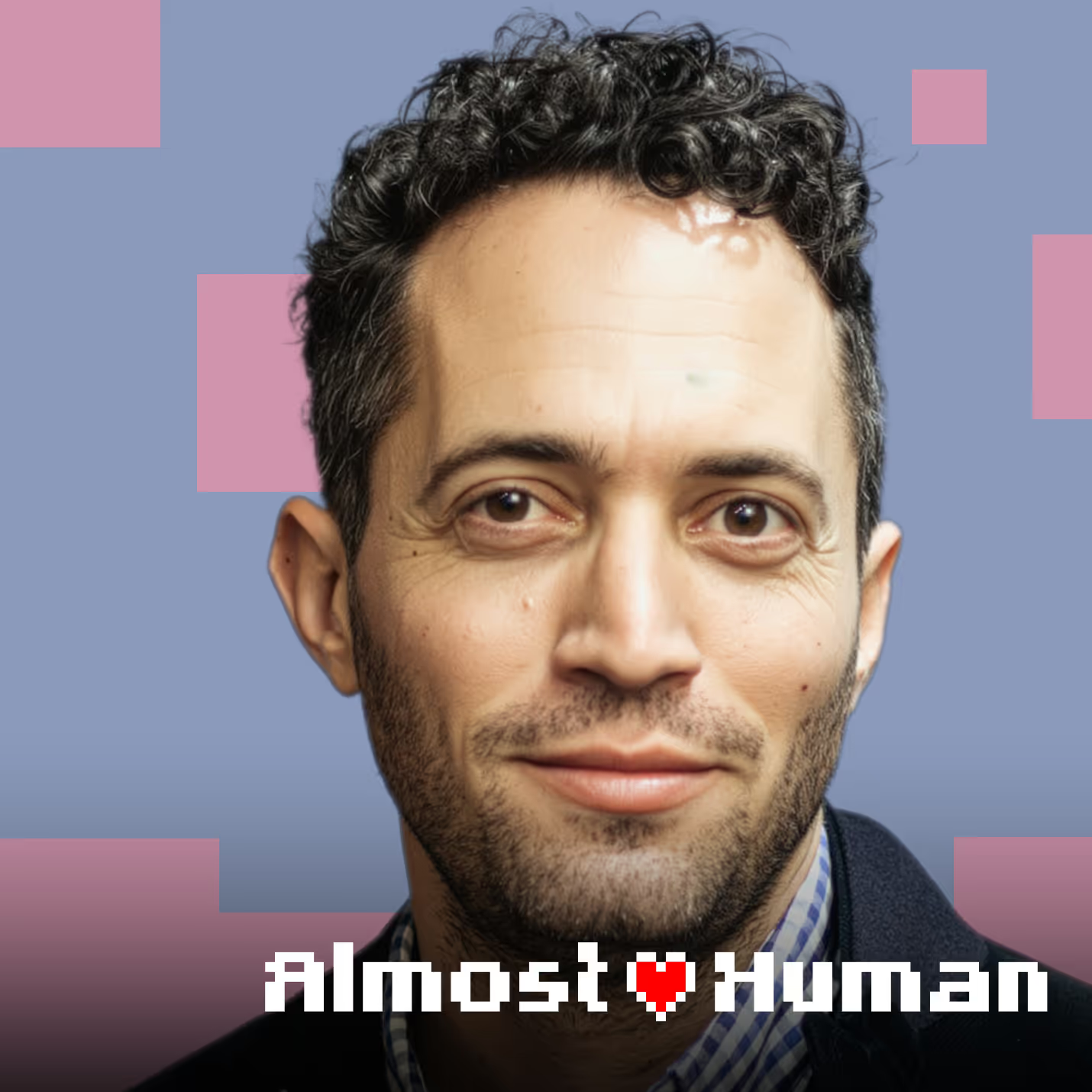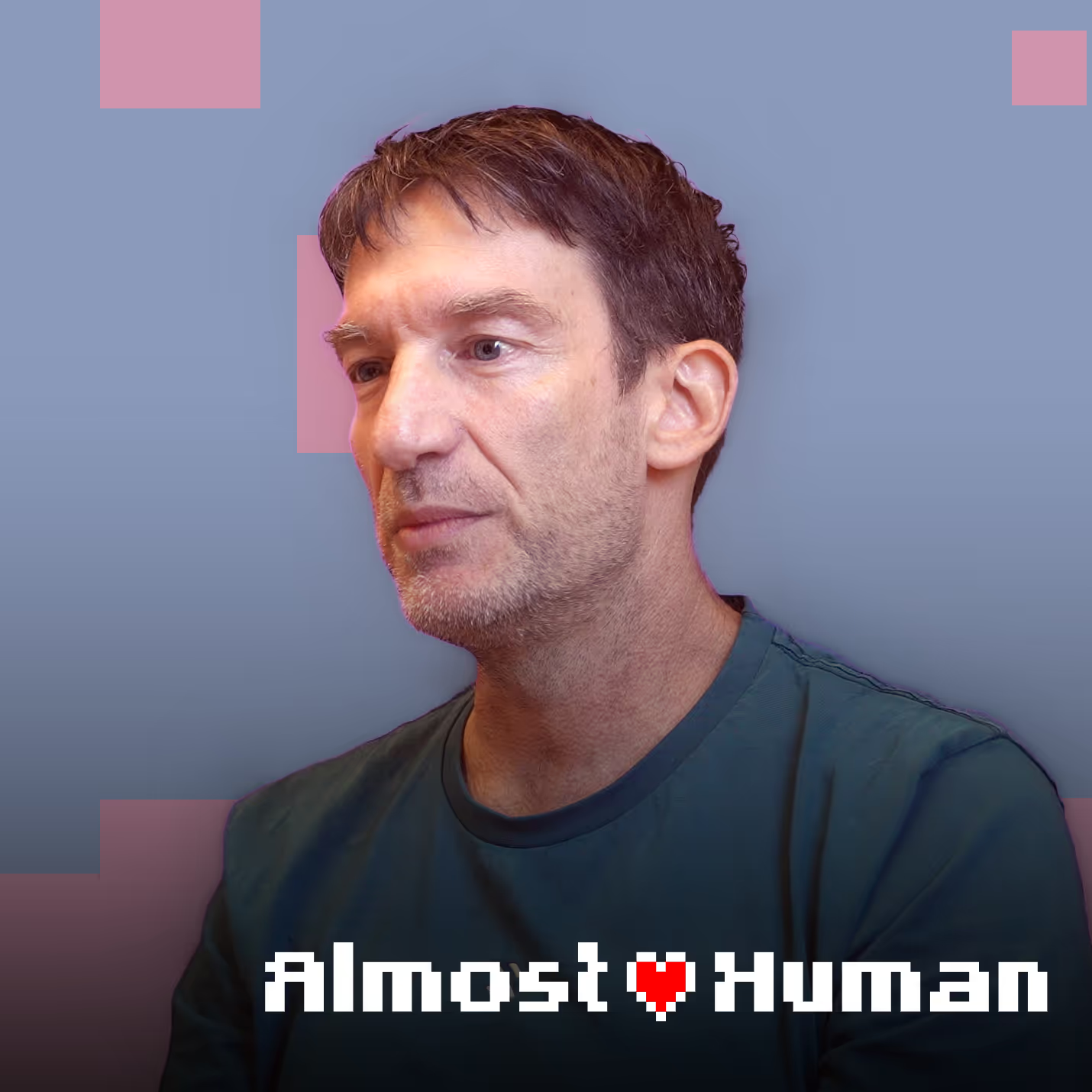Eyal Waldman



How can values create value? On this podcast, Michael Eisenberg talks with business leaders and venture capitalists to explore the values and purpose behind their businesses, the impact technology can have on humanity, and the humanity behind digitization.
Eyal Waldman



How can values create value? On this podcast, Michael Eisenberg talks with business leaders and venture capitalists to explore the values and purpose behind their businesses, the impact technology can have on humanity, and the humanity behind digitization.
Eyal Waldman
Eyal Waldman

Eyal Waldman
Eyal Waldman
- [00:00] Intro
- [00:46] Israel Prize Controversy
- [03:00] Mellanox & NVIDIA's AI Impact
- [04:08] Mellanox’s Contribution to AI
- [06:30] AI Education & the Role of the Government
- [14:23] October 7th Reflections
- [21:30] Personal Tragedy
- [23:29] Relationships With Palestinian Employees
- [24:35] Plan for Peace
- [33:07] Resilience of the Israeli People
- [39:33] Takeaways From Meeting Biden & Blinken
- [44:21] Remembering Danielle Waldman and Noam Shay
On this episode of Invested, Michael hosts Eyal Waldman, the chairman of Waldo Holdings and co-founder of Mellanox. This is Eyal's second time on the podcast - if you’d like to hear the first episode, please go to https://content.aleph.vc/podcast-episodes/eyal-waldman-episode-10
Waldo Holdings is a family office that focuses on diversified investments in private and public companies, various funds, real estate and other financial platforms and vehicles.
Mr. Waldman has been the co-founder, president, CEO and board member of Mellanox Technologies since March 1999. Mellanox is a semiconductor company which went public on Nasdaq in 2007 and was acquired by NVIDIA on April 2020 for more than $7B.
Between March 1999 until June 2013, Mr. Waldman served as Mellanox’s chairman of the board.
From March 1993 to February 1999, Mr. Waldman served as Vice President of Engineering and was a co-founder of Galileo Technology, Ltd., a semiconductor company, which went public on Nasdaq in 1997 and was acquired by Marvell Technology Group, Ltd. in January 2001 for $2.7B.
From August 1989 to March 1993, Mr. Waldman held several design, management, and architecture related positions at Intel Corporation, a manufacturer of computer, networking, and communications products, and was awarded with the “IAA Intel achievement award” and the “Employee of the year” award.
Mr. Waldman serves on the board of directors of several private and public companies.
Mr. Waldman holds a Bachelor of Science degree in Computer Engineering and a Master of Science degree in Electrical Engineering from the Technion - Israel Institute of Technology.
In June 2016, Mr. Waldman was awarded an Honorary Doctorate by the Technion.
Please rate this episode 5 stars wherever you stream your podcasts!
Michael Eisenberg:
I normally, at the end of the podcast, ask people how they want to be remembered. But I want to actually ask you how you want Danielle to be remembered.
Voiceover:
This episode of Invested is dedicated to the memory of Danielle Waldman and Noam Shay, who were murdered on October 7th.
Michael Eisenberg:
Sometime seven, eight months ago, I sat down and interviewed Eyal Waldman, who's here with me again for this podcast. A lot has changed in your life and in the world since October 7th, and I'm happy that you were willing to come back again for another conversation. But I actually want to start this conversation in a place I didn't think I was gonna start it.
Literally ten minutes ago as I was walking down the block to come in here, I got a WhatsApp from a friend of mine, who said, “Good news, it looks like Eyal is going to get the Israel Prize after all.” Literally ten minutes ago as I walked down the block. Do you even know this?
Eyal Waldman:
I know that there's going to be an Israel Prize ceremony on Independence Day. I haven't yet received an official notice that I have received the prize.
Michael Eisenberg:
Okay. So for those listening, there has been a little bit of a drama around Eyal. For those who don't know, if they listened to the last episode, Eyal is the founder of Mellanox, a company that was sold to Nvidia–and is really at the heart, the beating heart of NVIDIA's rise in AI. There's the GPUs, and then there's the interconnects, which are developed by Mellanox and Eyal. And once every few years, I don't remember how many, it's instituted by Prime Minister Bennett, they now give an Israel Prize, which is the highest prize in the country for entrepreneurship.
Eyal Waldman:
No, it was not initiated by Bennett.
Michael Eisenberg:
No?
Eyal Waldman:
It's 71 years old.
Michael Eisenberg:
No, not the Israel Prize, the one in entrepreneurship.
Eyal Waldman:
Oh, I don't know. Okay, maybe.
Michael Eisenberg:
Yeah, the one in entrepreneurship. And the Israel Prize is the most prestigious prize in Israel. And seemingly, maybe you know more than I do–t was going to be awarded to Eyal. I can't think of anyone more deserving, candidly, than you, to receive the prize.
And then there was a political upheaval about it–you want to describe it? You had a passionate appearance in the Knesset. Would you prefer not to talk about it?
Eyal Waldman:
I think it's, I think what's the most important thing is that we're getting back to normal, and the way it should work is working. And I think it's a small accomplishment in getting the right way Israel should be managed right. And I think the professional committees are the ones that should decide who's getting the prizes and who's not, and not anyone else.
Michael Eisenberg:
The–I appreciate you saying that, by the way.
Eyal Waldman:
I appreciate it too.
Michael Eisenberg:
I think your career as an entrepreneur in this particular moment right now–I'm not talking about the moment in Israel, I mean the moment of artificial intelligence–is quite striking.
Last time we were here we talked about the origins of Galileo, and then the opening of Mellanox and the transaction with NVIDIA. One of the other things I found striking is that Jensen, the CEO of NVIDIA, has, I would say, been incredibly supportive of both the Mellanox team and Israel. Very outspoken about it and what's gone on here since October 7th.
Has that surprised you in any way or…?
Eyal Waldman:
No, I think Jensen has his heart in the right place. And I think he realizes the contribution and the importance of Israel. I think he was a supporter of Israel even before that. Jensen is also supporting us employing the Palestinian employees, and I think would have liked us to increase the number of Palestinian employees.
So I think it's the right thing to do. Mellanox today contributes more than 13 billion dollars to the revenues of NVIDIA, so it's a significant part. And they were growing, so I think the synergy between Mellanox and NVIDIA has obviously gone very well. As a result, NVIDIA is worth more than 2.2 trillion dollars, became the third largest in terms of market cap in the world. So I think it's a great acquisition, a great synergy, and a great merger of the two companies and technologies.
Michael Eisenberg:
How important is the Mellanox team that's still here, obviously–and grown–
Eyal Waldman:
It's growing very fast, yes.
Michael Eisenberg:
It's growing very fast–not just to NVIDIA, but to the future of AI?
Eyal Waldman:
Look, AI, it's a simple thing. It's all based on data. The faster you can read data, and the more data you can read in a period of time, the more intelligent you become. The more concise your decisions are, the more correct your decisions are, the more data you look at per second.
What we do is we bring more data, faster than anyone else, with the lowest latency so that the GPU, the main processor, can analyze more data per second, and that's why we are, NVIDIA can build the most intelligent supercomputers or computers in the world. So it's very important, the architecture.
You have the CPU, you have the interconnect, and you have the memory. So NVIDIA is taking care of the GPU, now of the CPU of the brain. NVIDIA, through Mellanox, is now also taking care of the interconnect and now the memory. something that needs to be improved as well.
Michael Eisenberg:
And when you think about the future of Israel's position in the world of AI, what do you think comes out of Mellanox and NVIDIA over the coming decade?
Like you rolled out of Galileo, and then did Mellanox, I mean - Galileo was one of the first chip companies in the ‘90s - how do you think Mellanox plays a role in that? Mellanox and NVIDIA.
Eyal Waldman:
Yeah, I think, I think Mellanox plays a significant role in artificial intelligence around the world. We build the infrastructure to enable everything on top of us to run faster and be more efficient, and be able to do more things that before could not have been achieved, could not have been done.
And it's very significant for all of humankind. I think the things we can find, things we can do with supercomputers, with artificial intelligence, and with such supercomputers for science and for everything else, is very significant.
Michael Eisenberg:
If you were advising–
Eyal Waldman:
I think we'll live healthier lives, more secure life, much better lives than every year that goes on. And we have more AI applications running next to us.
Michael Eisenberg:
I want to come back to that more secure thing in a second. But if you were advising the Israeli government, or Israeli entrepreneurs, whoever you think is important, and what we need to do right now in the world of AI, what would it be?
Eyal Waldman:
It has like, multiple facets. The number one is, deal with AI itself. So the first, the building blocks, the hardware, the infrastructure, whether it's electronic, photonics, the basic stuff that builds the infrastructure. Then the silicon, then the architecture, then the middleware, then the building blocks of LNM and stuff like this.
So basically the building blocks of AI is very important.
On top of that, the utilization of AI into different markets, into different applications like fintech, like Agritech, like foodtech–everything you can think of, legal stuff, healthcare–everything can use AI. So I think first we need to be involved in the infrastructure, in the basic building blocks of AI.
On top of that also the middleware that provides engines to everybody on top of that, and then the applications themselves. And we should play in all three or four categories in Israel. that need to be built up.
Michael Eisenberg:
And what should we do practically in order to play in those categories in Israel?
Eyal Waldman:
I think we are playing already in those categories. We have the infrastructure with NVIDIA, Mellanox, and I think there are more companies trying to do that. We have middleware companies like AI21 or 21AI. We have more companies being built up. There's more research in Weizmann Institute, in Tel Aviv University, in the Technion, in Be'er Sheva, in other places–Bar Ilan–that are very successful with AI. And we're seeing a lot of companies, I've invested in multi companies in fintech, agritech, foodtech and many other places that they're doing a lot of augmented reality that's very interesting, that all of them has to do with AI.
Michael Eisenberg:
Would you encourage the government to do anything?
Eyal Waldman:
I think the government should, number one, make sure our education is enhanced, and we have the number one education related to AI. There's talks about building now an AI institute and there should be some budget there. I think we should attract talent from outside of Israel to come here for sabbaticals, to come here for their postdocs to do and bring the best minds to Israel for short periods of time, like two, three years that will leave their students here with a lot of knowledge, a lot of capability, and will continue their way with AI research in Israel.
So education is number one in the universities, and different issues and so on. On top of that, I think the government can direct some of the funds that are intended to encourage startups or venture capital to invest in AI. But other than that, I think the government should just stay aside, make sure the infrastructure for education is there. There is funds for startups, and then let the economy do itself.
Michael Eisenberg:
What about compute and energy right? Compute’s a bottleneck right now, we need more and more of it, and it's gonna be a needed national resource, and energy to power this compute is gonna be needed.
Eyal Waldman:
Let's leave it for a second, power aside. But I think yes. Israel has not had an entry in the top 500 since I think the 1980s, which is a lack, significant lack of capability in Israel.
Michael Eisenberg:
The top 500 what?
Eyal Waldman:
Supercomputers.
Michael Eisenberg:
Supercomputers, right.
Eyal Waldman:
Supercomputers in the world. I think we need to be in the top 250 at least. I've talked about this with the government multiple times. I hope now we're going to do this. I think that capability, or the, when you have such a supercomputer, it is very significant and we need to do something about this. After that, it will bring a lot of capabilities. If, for example, if you look at Google and Facebook, they were funded when students had access to a lot of compute power, right?
And once students have access or smart people have access to compute power, they can think of many ideas that do not exist today. If they have something to play with, many startups, which may grow to companies like Google and Facebook, may be created, and I think this will happen when we have this big supercomputer here.
Michael Eisenberg:
Should the government subsidize compute for entrepreneurs and people to make sure we have enough of it? Should it buy NVIDIA boards?
Eyal Waldman:
I don't think the government should do that, no. What I do think the government should initiate–we should take the model from Ulich or Cambridge or Virginia Tech. So what we should do is the government should like, buy and build the first supercomputer.
That's one. Once you have it up and running, you charge for utilizing it. So anyone that wants to use it for research, or for industry, pays a fee to use the supercomputer. The next supercomputer within three years, or let's say maybe the first generation is two years, can be built and bought from the revenues, from the income you get from the first supercomputer. And so on.
So every three years you need to calculate what's the money you need to create or build the next supercomputers. When you build the next generation, you still leave the generation minus one working for students, for academia, and so on. And you have income from the first supercomputer and it can actually sustain itself if you manage it correctly.
And this has been done in other places in the world. We should learn, copy, exact–we don't need to invent the wheel–and just build supercomputers that then will fund the next generation. So I think the government should not subsidize, but should bring the first supercomputers to Israel and then have it fund the next generations.
Michael Eisenberg:
Like infrastructure, like you build a road or a train, you should build the first supercomputer?
Eyal Waldman:
And it's even more important because it will enable us to build better infrastructure, much smarter, much better in the future.
Michael Eisenberg:
You mentioned that you think the world will be more secure. And in the last podcast, you mentioned that we'll have, kind of, better psychologists or medium psychologists become good psychologists.
It's true also that mediocre hackers become better hackers, with AI and compute power. At least in my own thinking, nuclear weapons were controlled by countries that are at least reasonably rational actors, but there's tens of thousands, hundreds of thousands of agents of chaos and very irrational people out in the world.
With their access to this AI and this compute power, and some mediocre hacking skills, they could wreak a lot of chaos. Might the world not be going to a place that's less secure?
Eyal Waldman:
Well, you need to be ahead of them, right? If you keep ahead of them and you do things right, then it'll be okay. There's always a race of arms between the criminals and the governments, or the police. And I hope we'll maintain–that the government, the police will be ahead of the criminals. This is the nature of man. I think we can regulate. We should be able to be ahead in things we do. And so I think we can do, but for example, you know, driving will be safer, right?
The autonomous driving. You'll be having drones that will take you from place to place. So now if you come from Jerusalem, instead of taking you 35 minutes, it'll take you 20 minutes.
Michael Eisenberg:
35 minutes? I wish it could be 35 minutes. You know what the traffic's like?
Eyal Waldman:
Okay, so let's say it takes an hour and a half, you'll be here within 35 minutes.
Michael Eisenberg:
Yeah.
Eyal Waldman:
And not only that, you'll be secure and you'll be able to work and do whatever you want while this thing brings you from one roof to another roof. Your medical, your health care will be much better because your clothes will tell you if there's something wrong, same as the Apple Watch today. But your shirt will decide what temperature you need to be in, the food you eat will tell you exactly what you need to eat and not eat.
You'll be much healthier, much safer, crime will be harder and harder to be executed, be done. The police will have much more control, much more power and intelligence of what's going on, so I think it's a good thing. If data is managed by the wrong people, and they put the wrong data for the computer, that's another issue, but we need to make sure that this is things that don't happen.
Michael Eisenberg:
One of my takeaways, at least, is that on October 7th, here, was that there was a lot of reliance on technology. Which I'm not sure is correct, by the way, but that's one of my takeaways. One of the takeaways has been, there's been too much reliance on technology and sensors, etcetera. Did you agree with that?
Eyal Waldman:
October 7 was a complete failure of so many things. It's also relying on technology, but also relying on humanoids that did not execute correctly. It's a concept that should not have been in existence. It's acceptance of things–coming close to the fence. Both, by the way, not just in Gaza, but also in Hezbollah. In the north border, I've been there and I've seen two Hezbollah tourists taking pictures of us right on the fence, and the army didn't do nothing.
Michael Eisenberg
I had the same experience.
Eyal Waldman:
And so I think we had assumptions that were completely wrong. We had concepts that were relying on a decoy that Hamas has made. And unfortunately we believed it.
And we've made a huge mistake, also on the operational side. The fact that we had only less than two platoons, or maybe even one and a half platoons of tanks in Gaza–while both, our extreme right government have put some 25 brigades to protect the settlers, which is completely, unbelievable wrong, because of the settlers doing wrong things in the West Bank–led to what happened.
So there's so many things going wrong. And on October six, between the night, between October six and seven, there are multiple phone calls to discuss. And I think the people that have made, and went to sleep or didn't do what they need to do, has a lot of responsibility of what went wrong. So I think everyone from the division commander of Gaza, and maybe two more division commanders from that level, up to the Prime Minister, all have responsibility, all have blood on their hands, and they need to resign.
Michael Eisenberg:
Just to go–before you carry on about October, just go back to the point about the digital technology. So they had indications from digital technology in the night of October 6th.
Eyal Waldman:
They had more than that.
Michael Eisenberg:
Yes. Yeah. A lot of–
Eyal Waldman:
They knew that hundreds of SIM, Israeli SIM were turned on.
Michael Eisenberg:
Yeah.
Eyal Waldman:
Turned on, have been lit up in Gaza. They knew that Sinwar is going down South. They had four more critical assets of indications that night, and they ignored them. And they said it could be a drill, it happened in the past and stuff like this, which is not true.
So we had at least five or six very strong indications that things are going to happen and the people at the top have ignored them, and that's why about 1,200–now with the soldiers I'd say about 1,700 people–paid with their lives. Were murdered, draped, burned, killed. And that's a big responsibility.
Michael Eisenberg:
Before we drill down there, what does it teach you? What do you take away about human thinking in this era of kind of–there's all these digital signals and intelligence signals, but the human thinking didn't kind of get there?
Eyal Waldman:
I think I've always, when I managed Mellanox–when there's doubt, there's no doubt.
Michael Eisenberg:
Explain?
Eyal Waldman:
When there's doubt, there's no doubt, right? If I have a doubt that something might go wrong and the expense of it going wrong is very expensive, I prevent it from going wrong. So I put a lot of effort in front of something wrong happening, to make sure that it doesn't happen. So for example, if I know this house is leaking and it might break down, I will go and close the water. I don't have a question. If there's a doubt, there's no doubt.
So if there's a doubt that things are going to happen, if you're a responsible person, and you know there's a book by Andy Grove, “Only the Paranoid Survive.” If you're paranoid enough, you will survive. If you're not paranoid enough, and you have too much confidence, and you think that two tanks, two platoons of tanks and a brigade of infantry can block 4,000 terrorists, that's where you end up at.
Michael Eisenberg:
I think it's hubris, not human cognition or not human perception. It was just hubris.
Eyal Waldman:
I don't know the difference between those things.
Michael Eisenberg:
Interesting.
Eyal Waldman:
Yeah. So I think it's definitely human mistakes. It's human responsibility. Decisions are made at the top, and they have the responsibility. And by the way, there are multiple people at lower levels that brought up the issue of what's going on.
And people ignored what they were saying. We had the plans. We knew of what they were planning to do. They actually said it multiple times on TV, and we chose to ignore it. The leaders chose to ignore it.
Michael Eisenberg:
In your own company, again, before we go down October 7th, you get something like from lower levels–it doesn't elevate up or people at the top don't pay attention–
Eyal Waldman:
It does.
Michael Eisenberg:
Why does it elevate up at your company, and you think it didn't elevate up here?
Eyal Waldman:
It did elevate, but they chose to ignore it.
Michael Eisenberg:
And why do you think? You were CEO, you said if there's doubt, there's no doubt, but here there was doubt.
Eyal Waldman:
No, they didn't do nothing.
Michael Eisenberg:
Why? What's, I'm trying to get into the thing. I know it's hard to analyze it.
Eyal Waldman:
I think they had the wrong concept. I think they were living in vain. I think they were thinking we’re too strong. I think they didn't appreciate the strength of the enemy. I think they thought it's unthinkable that we will be defeated, that we will be raped, that we will be humiliated.
So they made all the possible mistakes.
Michael Eisenberg:
No, kind of, appreciation for the competitive nature of the world and uncertainty unfolding and people always wanting to kill you.
Eyal Waldman:
That's given.
Michael Eisenberg:
No, I get it. That's what you're saying, that they didn't have that.
Eyal Waldman:
You learn, when you're a CEO, you learn to live in uncertainty. I met today a CEO, and he asked me–so you learn to live in uncertainty. It's part of your life. It's part of where you are. Always things can go wrong. Your competitors can come with something. Your vendors can come with something. Something can go–imagine you're a provider to the New York stock exchange, or to Google and Facebook, and a 10 millisecond of system going down costs them more than a hundred million dollars.
Michael Eisenberg:
Yeah.
Eyal Waldman:
Even, and with Alibaba at 11/11, at Singles’ Day, milliseconds can cost billions of dollars.
Michael Eisenberg:
Yeah.
Eyal Waldman:
So you have a lot of responsibility and you always live in uncertainty. Your job is to build enough shock absorbers, to build enough margins, to make sure that you don't miss. Nothing that can go wrong.
And this is, I think, one of the things why Mellanox was successful. We were paranoid, completely scared of everything that we had to do. We didn't even trust ourselves in many cases, and we've always put more margin of what we thought can go wrong. And eventually we delivered correctly. And this is something that's not been done here.
Michael Eisenberg:
For those who have been under a rock for the last six months, Eyal lost his dear daughter, Danielle, on October 7th.
Can you tell us about October 7th for you? You weren't in the country to start, right?
Eyal Waldman:
Yeah. Yeah, I was in Indonesia. I was on vacation. It was a holiday.
Michael Eisenberg:
And you heard?
Eyal Waldman:
I heard that she's not responding, that she's missing.
So I took the plane back. Took me about 20-something hours to get back. They enabled us to land. Not with the plane I came, I had to bring another plane. They didn’t land foreign planes to come and land here. I got here, and three hours later I went down south. I found the car. It's full of bullets, blood.
The body's already been taken. When we were going there, there's still engagements with terrorists Monday morning. We were very close, or part of one of them. So yeah, it wasn't a good day.
Michael Eisenberg:
And–you reached out to her, you heard, you knew she was at the party there?
Eyal Waldman:
I didn't know, her mom knew.
Michael Eisenberg:
Her mom knew she was at the party?
Eyal Waldman:
Yeah.
Michael Eisenberg:
And they called and told you she's missing?
Eyal Waldman:
And Guy and Sharon told me that she's not answering her phone.
Michael Eisenberg:
And you landed and you went down armed, I assume, I would hope. And her body had been taken already?
Eyal Waldman:
Yes.
Michael Eisenberg:
It was subsequently reclaimed? Or no?
Eyal Waldman:
It was taken by Zaka.
Michael Eisenberg:
It was taken by Zaka. And I'll tell you when I came to visit you at the Shiva, it was one of hardest hugs I've had in a long time. And, in my life, you're there–can you tell us about Danielle, your daughter?
Eyal Waldman:
She's an amazing person.
Michael Eisenberg:
What was her, what was her fiance's name again?
Eyal Waldman:
Noam.
Michael Eisenberg:
Noam.
Eyal Waldman:
And, no he wasn't her fiance. He gave her like, a promise ring.
Michael Eisenberg:
A promise ring.
Eyal Waldman:
Yeah.
Michael Eisenberg:
Tell us about those–I actually want to ask an important question. You mentioned earlier that Jensen pushed you to hire more Palestinians. You always inspired me. I think you were always a man of peace, and a man of incredible optimism. You hired so many Palestinians, in both the West Bank and in Gaza. Am I correct?
Eyal Waldman:
Yeah, we had about 25, 30 employees in Gaza.
Michael Eisenberg:
25, 30 employees in Gaza.
Eyal Waldman:
And about 175 in the West Bank.
Michael Eisenberg:
And do you think any differently about that today? Has anything changed in your outlook/
Eyal Waldman:
I divide it into two things.
First, the short term and long term. So for the long term, the answer is probably not. And when we can talk about that. For the short term, I think what we need to do now is eliminate Hamas and Islamic Jihad. And this is, let’s not compromised about this. I think there's two units being built to take care of that.
It may take us a few years, but we'll do this. Anyone that was associated with Hamas, anyone that passed the fence and participated in what was going on in October 7th will be eliminated. And that's number one.
Number two, I think in Gaza, we need to bring an international coalition led by the Arab League, led by Egypt and the U.S. and Europe be involved, and they should come and have two mandates on Gaza Strip. One, there's no artillery and rockets in Gaza. Anything that exists goes and being buried in Sinai. And second is education. Maybe they should bring the Emiratis’ education into Gaza.
Michael Eisenberg:
Deradicalization? Deradicalization, to un-radicalize the education.
Eyal Waldman:
I think they should have western education that talks about music, about science, about, paintings, and love, and stuff like this, instead of hate and destruction. And then they should build like a local government from the six, seven strong families in Gaza to be the technocrat.
A government for an intermediate period of time. Anyone, IDF should retreat from Gaza within three months to our borders. And then anyone who gets close to the fence will be shot. No questions. About 800 meters. So they should be shot, like we did in the past. And then they should be the ones deciding who will build the next government, who will rule Gaza.
I don't think we should try and dictate who's the next government in Gaza, and I'll soon talk about also the West Bank. I hope they'll be the same. But we should have the veto. We can say who cannot participate in the elections, who cannot be the entity to rule Gaza. So we can say Hamas cannot, Islamic Jihad not.
We don't say who will, but we say who cannot. That's the only veto we have. And I hope that within time, when they change their leadership, the Palestinian leadership, and we change the leadership here in Israel, we'll be able to create a peaceful agreement, a two-state solution that will yield the right synergy between the two people, the Palestinians and Israel.
I think until now, the Palestinians did not want to have peace. I think both the economic and the political leadership enjoyed a lot the current situation by getting a lot of money from corruption. And that is why they kept it this way. We always came with suggestions of what the peace agreement should look like.
And I've done multiple things with the Palestinians. I employed Palestinians. I donated $360,000 for a Palestinian hospital in Gaza. I've done a peace initiative that took about 12 months. But then Abu Mazen stopped it. I think we now need to make them want to have peace.
Michael Eisenberg:
How do you make someone want to have peace?
Eyal Waldman:
Have them suffer. So we need to have them want to have peace. They should understand if they don't want to have peace, it's going to be miserable for them.
Michael Eisenberg:
Peace comes from defeat at the end of the day, right?
Eyal Waldman:
No no.
Michael Eisenberg:
That's what happened in Egypt.
Eyal Waldman:
No no. By the way, they think they won, which–I think also Hamas now think they won. So don't misunderstand. We want them to–they've done a lot of things. They've achieved a lot in October 7th.
Michael Eisenberg:
Unquestionably.
Eyal Waldman:
So we should not step on their pride. You do agreements with respect, you do agreements with trust, and you do agreements that are win-win or lose-lose, whatever you want to call that.
But in a similar situation, one of my board members told me that if both sides come out of the agreement and both of them think they left something on the table, it's a good thing.
Michael Eisenberg:
Yeah.
Eyal Waldman:
So we need to do that, but we need to make sure they want to have peace. And this is something that has changed, and we need to push for that in a very big way.
I'm happy that now also in the West Bank–what happened in Gaza, we all know, but in the West Bank, I think we arrested more than 3,600 terrorists. We've killed hundreds of them. We've gone to places that we haven't been in the last 20 years, like An-Najah University, Birzeit and more places.
We're going everywhere we want. And we'll continue doing this until we get whoever we want. And in the north, we need to get Hezbollah up to the Litani, 40 kilometers from the border. I think now they're about between 5 and 10, or 8 and 10 kilometers north to the border. I don't think we're going to have a full engagement in the north.
But, once we achieve this, and we replace the regime on both sides, we should strive and make them strive for peace. Once they understand it's better for them to have peace with us, and we also do this, I think it's the right ground to have the right negotiations, to build a very significant coexistence of the Palestinian people, the Palestinian state with the Israeli state.
Michael Eisenberg:
I find it striking how optimistic you are about it given your personal loss, and how–
Eyal Waldman:
I think there's only one way to converge. I don't think any people can rule or be responsible on other people. It's never worked. And this is not something we should strive for. So we should do what's best for the Israeli people.
And what's best for the Israeli people is to have a two-state solution. I don't think there's any other solution that is, will hold water for a long time.
Michael Eisenberg:
How do you–maybe I”ll ask the question this way, do you still employ the people in Gaza and the West Bank?
Eyal Waldman:
No, Gaza, October 7th, disconnected. People in the West Bank, yes. NVIDIA still employs them very much.
Did you hear from any of them after what happened to you?
Eyal Waldman:
Not from the people in Gaza.
Michael Eisenberg:
Not from the people in Gaza, yes from the people in the West Bank?
Eyal Waldman:
Yeah, I heard from one or two.
Michael Eisenberg:
From one or two. Did that surprise you in any way, or…?
Eyal Waldman:
No.
Michael Eisenberg:
No. Disappoint you?
Eyal Waldman:
No.
Michael Eisenberg:
No. Because?
Eyal Waldman:
You have expectations, you're disappointed. You don't have expectations, you're not disappointed.
Michael Eisenberg:
And what do you think is the plan for NVIDIA for further employment in Gaza in the West? Well, Gaza it’s impossible to tell anything right now, but….
Eyal Waldman:
I hope eventually we'll be able to open another design center in Gaza. Look, I think the economy on the Palestinian side is important to us. I think we should help them develop the Gaza gas field.
Michael Eisenberg:
Called Gaza Marine.
Eyal Waldman:
Gaza Marine–
Michael Eisenberg:
Yeah.
Eyal Waldman:
–field. I think we should help them have technology design centers. I think we should help them in multiple things. I don't think today we should bring Palestinian employees into Israel as a result of whatever in October 7th, but we definitely need to build a synergy.
And I think there's great synergy between the Palestinian economy and capabilities, and the Israeli economy and capabilities. And we should benefit Israel and the Palestinians should benefit from this. So yes, I think we should do this.
Michael Eisenberg:
Has anything deeply changed in your outlook since October 7th?
Eyal Waldman:
The time frame. It's interesting. It could be that we're closer to peace now than we were before. If you look at what happened in ‘73 there was a big crisis, and the number one enemy for Israel was Egypt. It was the number one enemy. And my father fought, he was a second in command of our brigade of tanks. I was second in command of brigade of infantry.
Michael Eisenberg:
You were in Golani, right?
Eyal Waldman:
Yeah, but that's reserve duty. I'm not normally in Golani, but in reserve duty. So in ‘73, Egypt was our number one enemy. And in 77, no one believed it would happen. But one guy, one guy, the Egyptians did not support him. No one from Egypt. The Israelis did not trust him.
And Sadat came and says, “I want to talk to the Knesset, to the Israeli parliament.” And Begin that did not trust Sadat said, “You're invited to come and talk.” And this one guy, Sadat, has made peace between Egypt and Israel. And I think it's amazing that from crisis in ‘73, our number one enemy in ‘77 made peace.
I hope the same things will happen now. So I hope now that after ‘23, that there's been so much suffering, so much destruction, that in ‘27 we'll be able to have peace. So we'll, we first need to replace the leadership on both sides, and then either we go and speak to the Mukataa, or they come and speak in the Knesset, or together, and there's one guy or two guys required to make peace.
Michael Eisenberg:
I lost a cousin on October 7th and thereafter. You lost your daughter October 7th. There's such a trauma in this country right now. It was real trauma around everybody, it's such a small country. Everybody knows somebody or is related to somebody who was murdered or raped or were wounded, because we've had a lot of, we don't even talk about them really. We have a lot of wounded soldiers.
Eyal Waldman:
Both visible and un-visible ones.
Michael Eisenberg:
A hundred percent. I'm sure my son-in-law wouldn't mind–he was wounded in 2014, and he suffered from PTSD, and he's written a song about it. And I talked about it very–he actually fought with the army to go back into Gaza now. And he's fought, he's actually in reserve duty as we speak.
This is a country that's kind of emerging from trauma. I think there was similar trauma after the Yom Kippur War in 1973, although it's hard to compare time periods. What are some of the changes you think go on in Israeli society in kind of response to this trauma over the coming years?
Eyal Waldman:
First, I think we're very resilient and very robust. I think we'll come out of this stronger, and hopefully also better. I think, the number one thing that I'm very disappointed is in the current government, and extreme right parties that are doing wrong things in the government, in the budgets, and being very sectorial in all the decisions they make. By the way, the Israel Prize is one example of that.
So we need to change the government as soon as possible. I think once we do this, and we have a logical government–and by the way, everybody outside of Israel is saying the same thing–if you look at the U.S. and Biden, and Europe, and many other places, saying the same things. Sometimes it's, you look, you see us better from the outside than we see from the inside.
So I think we're resilient. I think we're very strong. We'll get, we will get the hostages back.
Michael Eisenberg:
You think we will?
Eyal Waldman:
We will get the hostages back. I don't know how long it's going to take, but I hope in the next, uh, worst case, I'd like to say less than 30 days. Let's give 45, 90 days.
We'll get the hostages back. I hope we'll be able to eliminate Hamas in multiple ways. And then we need to start rebuilding. And this rebuilding will be prosperous for both sides.
Michael Eisenberg:
Other than the government level, at the civilian level, what changes should we look to implement here?
Eyal Waldman:
Look, I think we have an amazing people.
Michael Eisenberg:
So do I.
Eyal Waldman:
I think the religious people, the extreme orthodox religious, they should take responsibility. I think they should be part of the military service, or, you know, some sherut le’umi–
Michael Eisenberg:
National Service.
Eyal Waldman:
National Service. So I think–and also we should look at the Arabs as part of Israel, and I'm very proud to say that this time the Arabs reacted correctly.
Michael Eisenberg:
Yeah. I think you're right about that.
Eyal Waldman:
The Israeli Arabs.
Michael Eisenberg:
Yeah. Agreed.
They have completely, don't want to be associated with the Palestinians. They want to be Israelis. They have been murdered. They've been raped. They've been kidnapped, the Muslims, to Gaza and by the Hamas, same as our Jews, because they’re Israelis. So I'm proud of that. So we need to change some of our sectorial understanding, and then on the extreme right parties that are part of the government today, and also things they're doing in the West Bank.
You're seeing more and more countries boycott either settlements completely, and individuals. And I think it's the right thing to do, to make sure that we act as we should and not abuse Palestinians or do wrong things in the West Bank or anywhere, anything else.
Michael Eisenberg:
Do you think– let me ask a question this way: And if the ultra-Orthodox aren't willing to go to the military, and aren’t willing to go out to work, then what?
Eyal Waldman:
I think we should–it really depends if you think it should be gradually, or it should be done quicker, but eventually they should be part of this.
Michael Eisenberg:
I'm a gradualist in general. I think very few things happen quickly that happened well. But I do think there are breaking points in history. I think we're at a breaking point in history right now.
Eyal Waldman:
I heard yesterday a rabbi that's saying he is preferring to die than serving in the army.
Michael Eisenberg:
I saw the same thing.
Eyal Waldman:
I heard a rabbi that said that if they need to go to the army, they'll just leave the country. When you hear rabbis say things like this, you don't understand where it's coming from. And this rabbi is getting the salary from me.
Michael Eisenberg:
No, he’s not, that one’s not. ???
Eyal Waldman:
Yes he is. He is getting, I'm paying his salary, and he's saying, if he needs to, if he, if they need to go to the army, they will–so first of all, I'll buy them the ticket. And second, I don't think it's the right statement.
Michael Eisenberg:
I know, I Tweeted at him, “is this a promise or a threat?”
Eyal Waldman:
And you know, the interesting thing, they say they respect the Israelis that are protecting them, and they're praying that the Israelis protecting them will be winning, will be successful. So if you're praying, why don't you go in and fight?
And, in the Torah, it actually encourages you to go and fight for Israel.
Michael Eisenberg:
Yeah. I don't need to be persuaded, I had four kids in Gaza
Eyal Waldman:
Yeah, no, I understand.
Michael Eisenberg:
But I agree with that. So I think we should, but this,
Michael Eisenberg: I, I don't like to get into the right-left politics thing, but–
Eyal Waldman:
This is not right or left.
Michael Eisenberg:
Does the left wing bear any responsibility?
Eyal Waldman:
This is, this is not right or left. Everybody bears responsibility. Everybody. The left, we've been–
Michael Eisenberg:
it's a generational thing almost. There's a whole generation of people that need to be pushed–
Eyal Waldman:
I don't blame just the right. I blame everybody. We completely screwed up. I think it started with the previous chief of staff, or maybe one and a half, but I think with the previous–so it's a concept that we have been taking for the past, let's say, five years. That is, that put us in where we are today.
Michael Eisenberg:
You met with President Biden, right? And Secretary of State Blinken?
Eyal Waldman:
Yes. Yeah, a number of times.
Michael Eisenberg:
What were your takeaways from those meetings?
Eyal Waldman:
I think they're amazing. I think President Biden said four amazing things, and is very much supporting and protecting Israel, and he will be there for us forever. And he's the one saying also we need to change the government.
So first he said, “You don't have to be a Jew to be a Zionist,” which is a very important statement. The second thing he said, then, during weekend dinners in his house, his dad always talked about the Holocaust and said, “We've never been for the Jews during the Holocaust.” And he said, “We will be here for you now, and we're standing next to you.”
The third thing he said, “You need to be within the envelope of the international rules of war law.” I think we need to be within the envelope of the rules of the laws of war. You need to be within the envelope of the international rule of law. And which I think we are doing.
Michael Eisenberg:
I'm certain we're doing it.
Eyal Waldman:
Yeah, I think we are trying to have as less collateral damage as we can, and we're doing everything we can. Yeah, I agree with that. And the last thing he said, “You should always think of the day after.” What is your goal? What are your targets? And I think there we're missing. I don't think our government.
is managing the day after in the right way. We should have a plan. We should have a time schedule. It's not something that we should just leave for, whatever happens. So he said those four things. It was very strong. He meant what he said. He's executing what he said. When they brought the two aircraft carriers and a number of submarines here, it was not to help us fight Hamas.
It was not to help us fight the Hezbollah, or the West Bank. It was to prevent a third world war with the farther states, or countries, like Iran, Iraq, Yemen, and other countries. And when this “Don't” speech, the big “Don't” speech was made, he exactly targeted those people, those ears.
Michael Eisenberg:
If you think about what's going on, you mentioned Yemen right now–this will be my last question on this topic, I want to go back to tech–how do you think about this kind of regional array? Where Yemen is being sponsored by Iran and Iran's not paying a price right now at all?
Eyal Waldman:
We did attack in Iran, or someone claims we attacked in Iran. People claim that we did attack in Iran.
Michael Eisenberg:
Right. The Americans haven't made them pay a price, right? They've just fired on the Houthis.
Eyal Waldman:
Again, I don't know who's done some operations, but there were some blowups in Iran recently. I think after this operation, which is a defense operation–what we're now in is not an offensive operation, this is a defense operation we're doing–after this defense operation is over, I think we should work very hard to get normalization with Saudi, which will lead to normalization with many Muslim countries around the world.
So I think we should very fast move to create normalization with Saudi. And I think we should create normalization, the right balance between the red countries and the red country, the red countries and the blue countries, where the blue countries–any country that's gray, Ukraine was a gray and it's kind of exploded. I think India–
Michael Eisenberg:
What do you mean by gray?
Eyal Waldman:
Gray, it's not identified with the west or with the east. I'll give you an example. Now Saudi was completely blue. I think in the past few years it went slightly red. I think now it's in between, and it may become to be blue again. I hope it will become to be blue again. So we need to make sure that the blue countries win the final game, the end game. And I think it's possible with the superior, superiority that the United States has.
Michael Eisenberg:
How do you think the tech industry has been impacted since October 7th?
Eyal Waldman:
So I think the tech industry was somewhat impacted. I think we've used a lot of tech in this war, a lot of AI and stuff like this. And more than two of my companies, the companies I invested in, have participated and helped in multiple things with AI. I think the high tech is very resilient, very robust, even though we had about in NVIDIA, about 700 employees in reserve duties–still NVIDIA executed and other companies have also executed.
Michael Eisenberg:
Flawlessly.
Eyal Waldman:
Hard, but yeah, still continue to execute. And I see also other companies do that. So we're resilient where we understand what we need to do and we're doing this. So I think we'll come out of this.
Michael Eisenberg:
Okay, you're optimistic about the future. I think.
Eyal Waldman:
Yeah, I think I'm always optimistic.
Michael Eisenberg:
I normally, at the end of the podcast, ask people how they want to be remembered, but I want to actually ask you how you want Danielle to be remembered.
Eyal Waldman:
As she was. She was like–she's an amazing person.
Michael Eisenberg:
You want to give some more details about her? I've read just about everything I think you've written on Facebook.
Eyal Waldman:
You know, she loved to dance, she loved people, she loved dogs, she loved horses, she did wake surf, she did snowboard, scuba-dive, everything. She liked people very much.
Yesterday I was talking in front of Americans. And one American woman, girl, came to me and said, “I went to the gym with Danielle and I only speak English. And always when Danielle was there, she made sure that everybody around me speaks English to me. And also her boyfriend, Noam.” She said, “She took such good care. She was so sensitive to me, trying to help, even in the gym.” She didn't even know her, but she helped. So that's Danielle.
Michael Eisenberg:
Always there for people. How old was she?
Eyal Waldman:
24.
Michael Eisenberg:
24. As we say, yehi zichra baruch. [Of blessed memory.]
Eyal Waldman:
Todah. [Thank you.]
Michael Eisenberg:
And there shall only be happiness going forward. Anything you want to ask me? Before we wind up?
Eyal Waldman:
You know, I think you can have a critical role In trying to bridge between a lot of religious communities and non-religious people.
And I think it's very important to bring both sides to the right understanding of what the future should hold. I'm disappointed, and I've tried to do this as well, to try and talk to Haredim. And I've seen yesterday another try like this, and I don't think it's working. And I think you can have a big role in bringing some of those things.
So I don't know if you're doing anything about this.
Michael Eisenberg:
I promise you I am. Even a fair amount. It's, but I think it's not trivial. I've spent a lot of time on it even before October 7th. And I think it's not trivial. I am optimistic about it, even very, but I think it goes through economics. And probably not for the military to start with.
And I think it, it's going to require some very hard political decisions that I'm not sure we found the people who have the courage to make it.
Eyal Waldman:
Yeah. I think we need to build the right coalition to do this, but this is something that's very significant. And I don't know how you see the high tech getting out of this October 7 operation.
Michael Eisenberg:
Like you, I think there is a lot of resilience, and I think there's been incredible G Wiz technology developed since October 7th. And I think companies, because they've had to get more efficient during this time, are actually fitter now than they were beforehand. And I think this has been just a terrible unimaginable tragedy and trauma on a national level.
But through it, and through the resilience, we've gotten fitter, both as a tech industry and maybe as a people. I think we've discovered something else, and this is–you flew back from Indonesia because of your personal thing, and you went down south, and you weren't afraid. We've discovered that our kids are incredible.
Eyal Waldman:
Yeah.
Michael Eisenberg:
I have kids the same age as your kids, and we've discovered that the most incredible generation of kids around the world lives in this country, and they stood up and went to fight. And stood up for what mattered. They discovered, tragically, what they're willing to die for. And if you know what you're willing to die for, you know what you're willing to live for.
And previous generations here have had to show that. And I think they've shown that. And it's–tragedy, nothing makes a tragedy fully better. But sometimes the body, when it goes into shock or gets hit, it comes back more resilient. I'm just, I'm blown away by this younger generation of kids, just blown away.
Eyal Waldman:
Do you see any tech transition out of Israel?
Michael Eisenberg:
I see there were people who were leaving before October 7th because of the judicial reform. Not a big number, or a small number. And I think those people have kind of gone ahead. Ironically I ran into a bunch of people who were caught out of the country on October 7th and never came back. I don't think the numbers are large.
Eyal Waldman:
No, but I'm saying after October 7th, do you see a transition or…?
Michael Eisenberg:
No. I don't.
Eyal Waldman:
There are some, and we should be very watching, because if you look at the, what's happening here, I'd say there's about, 15,000 or what, that are leading.
Michael Eisenberg:
That matter.
Eyal Waldman:
That matter, right. And if some of them start leaving the country because of the government, or because, if the same government is elected again. I think we'll be in a bigger trouble.
Michael Eisenberg:
I think that could be a challenge, I agree with that. I think we need to work hard to make sure that the government is up to the sacrifice made by this young generation and the people who have gone in there.
Eyal, I want to thank you for coming on a second time. I think listeners will find this fascinating, both on the personal side, and on the business, and technology and AI side. We obviously share in your sorrow of the murder of your daughter. Choking up even talking about it. And I wish you only happiness. Thank you.
Eyal Waldman:
Thank you. And thank you for inviting me again.
Michael Eisenberg:
Yeah. Thank you for coming.
Eyal Waldman:
Thank you.
Follow Eyal Waldman on LinkedIn
Subscribe to Invested here
Learn more about Aleph
Sign up for Aleph’s monthly email newsletter
Subscribe to our YouTube channel
Follow Michael on Twitter
Follow Michael on LinkedIn
Follow Aleph on Twitter
Follow Aleph on LinkedIn
Follow Aleph on Instagram
Executive Producer: Erica Marom
Producer: Sofi Levak
Video and Editing: Ron Baranov
Music and Art: Uri Ar
Design: Rony Karadi
Follow Eyal Waldman on LinkedIn
Subscribe to Invested here
Learn more about Aleph
Sign up for Aleph’s monthly email newsletter
Subscribe to our YouTube channel
Follow Michael on Twitter
Follow Michael on LinkedIn
Follow Aleph on Twitter
Follow Aleph on LinkedIn
Follow Aleph on Instagram
Executive Producer: Erica Marom
Producer: Sofi Levak
Video and Editing: Ron Baranov
Music and Art: Uri Ar
Design: Rony Karadi

